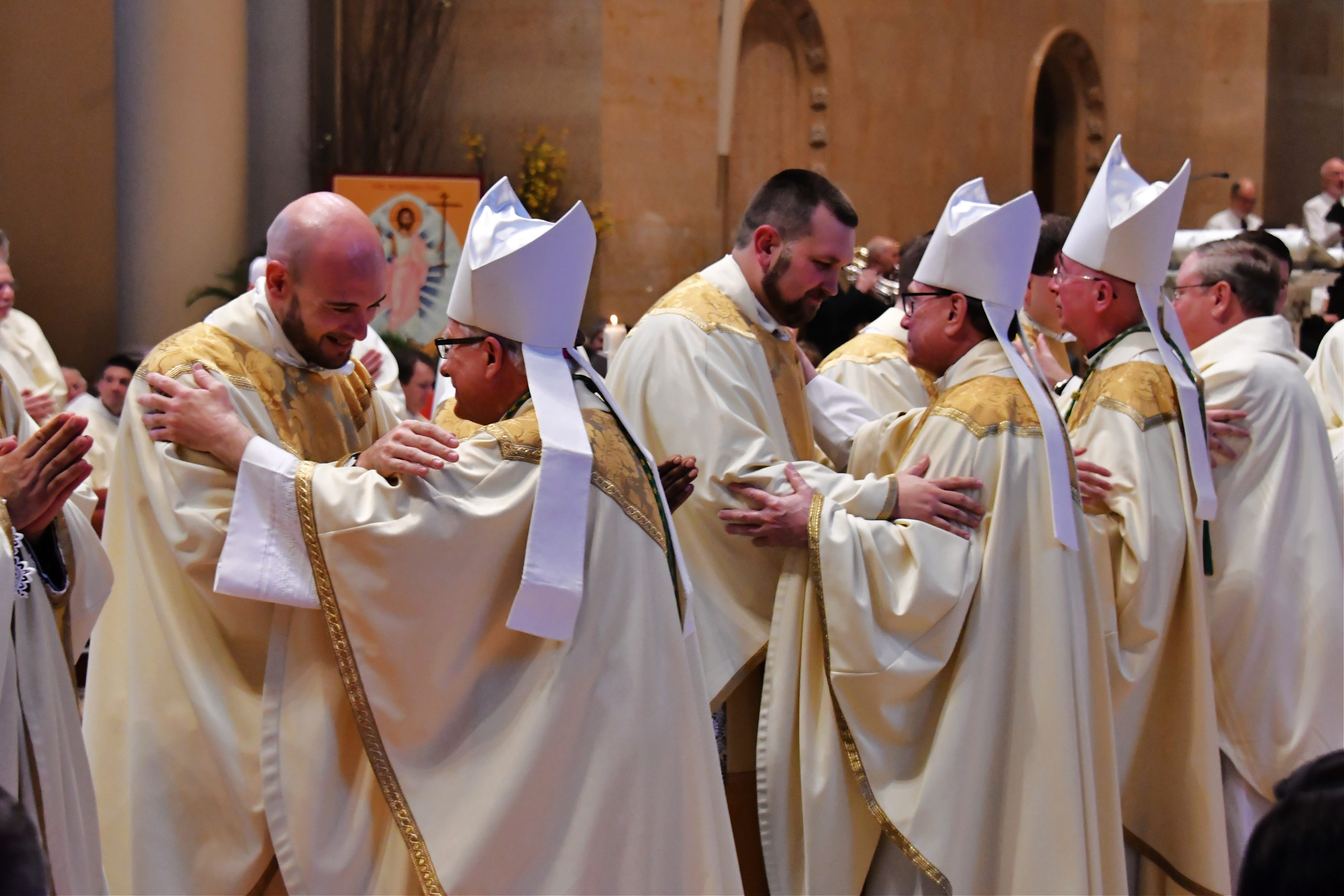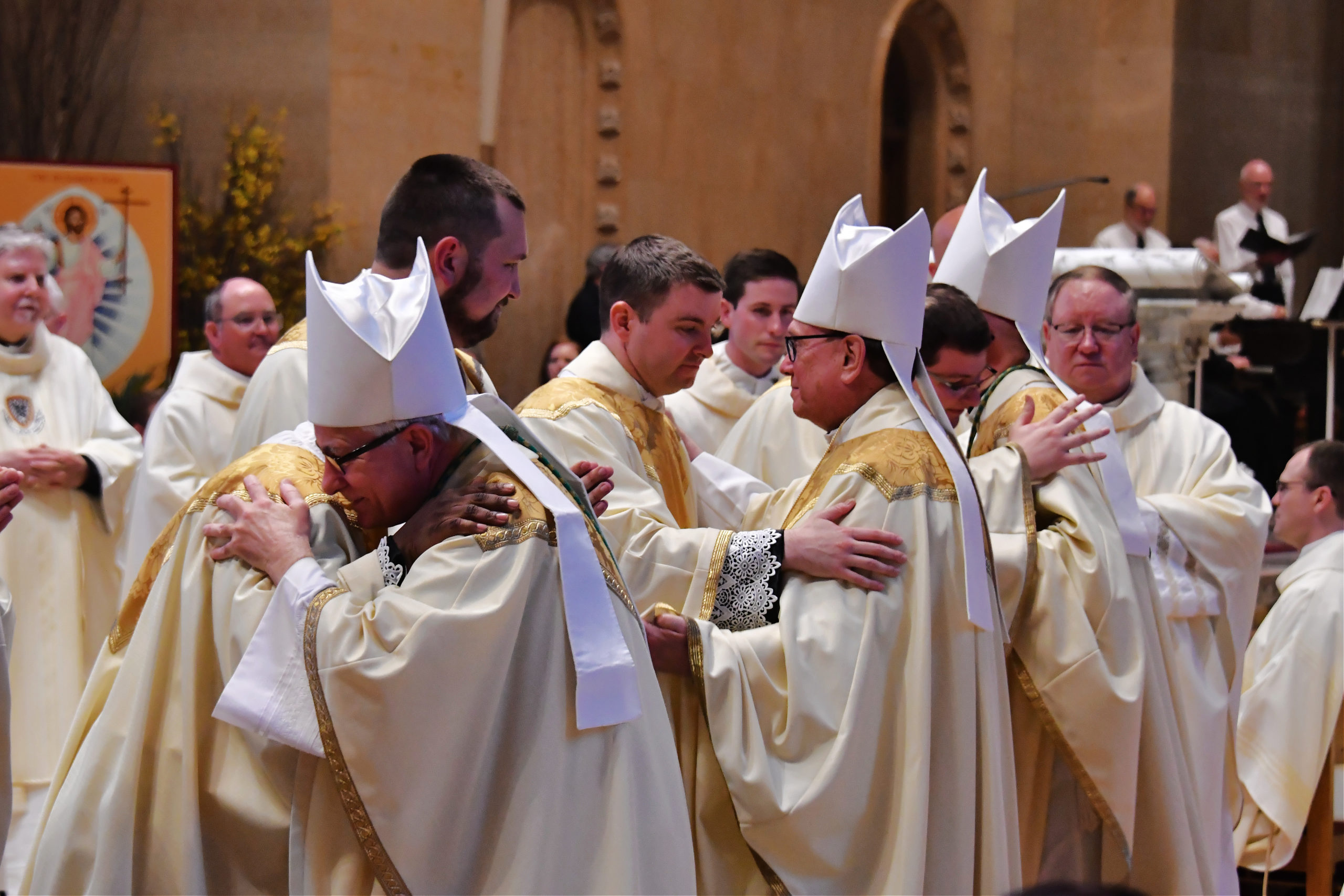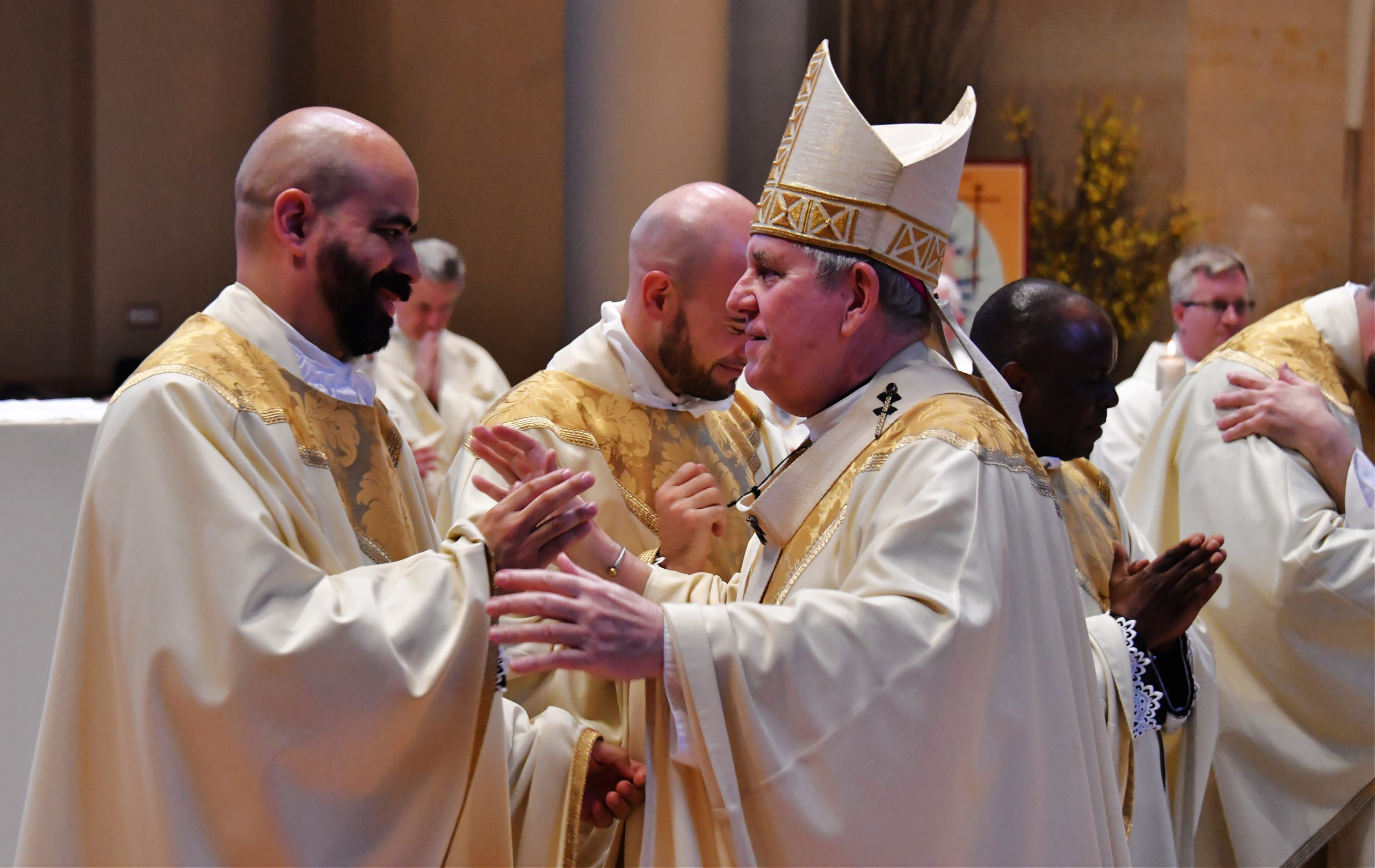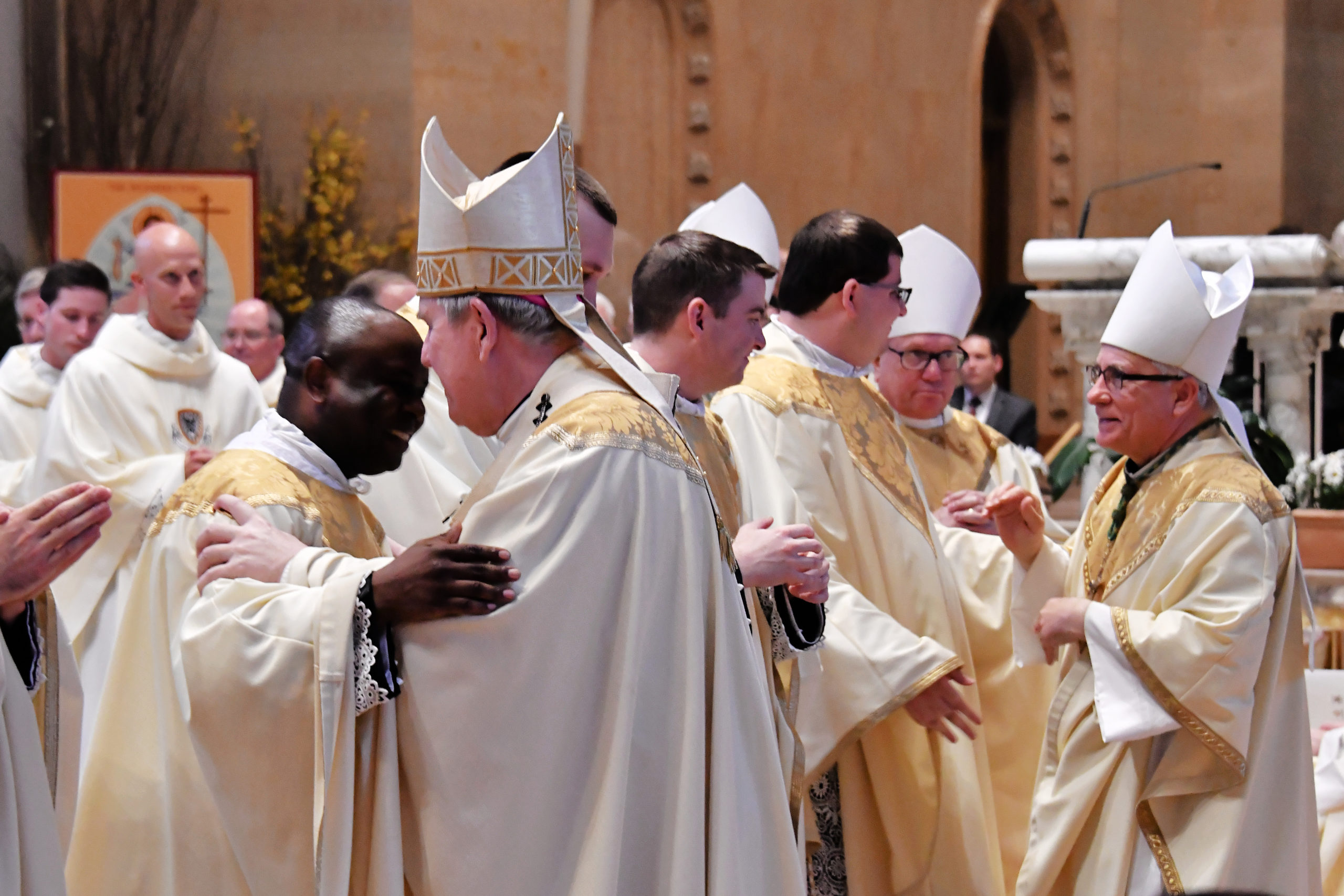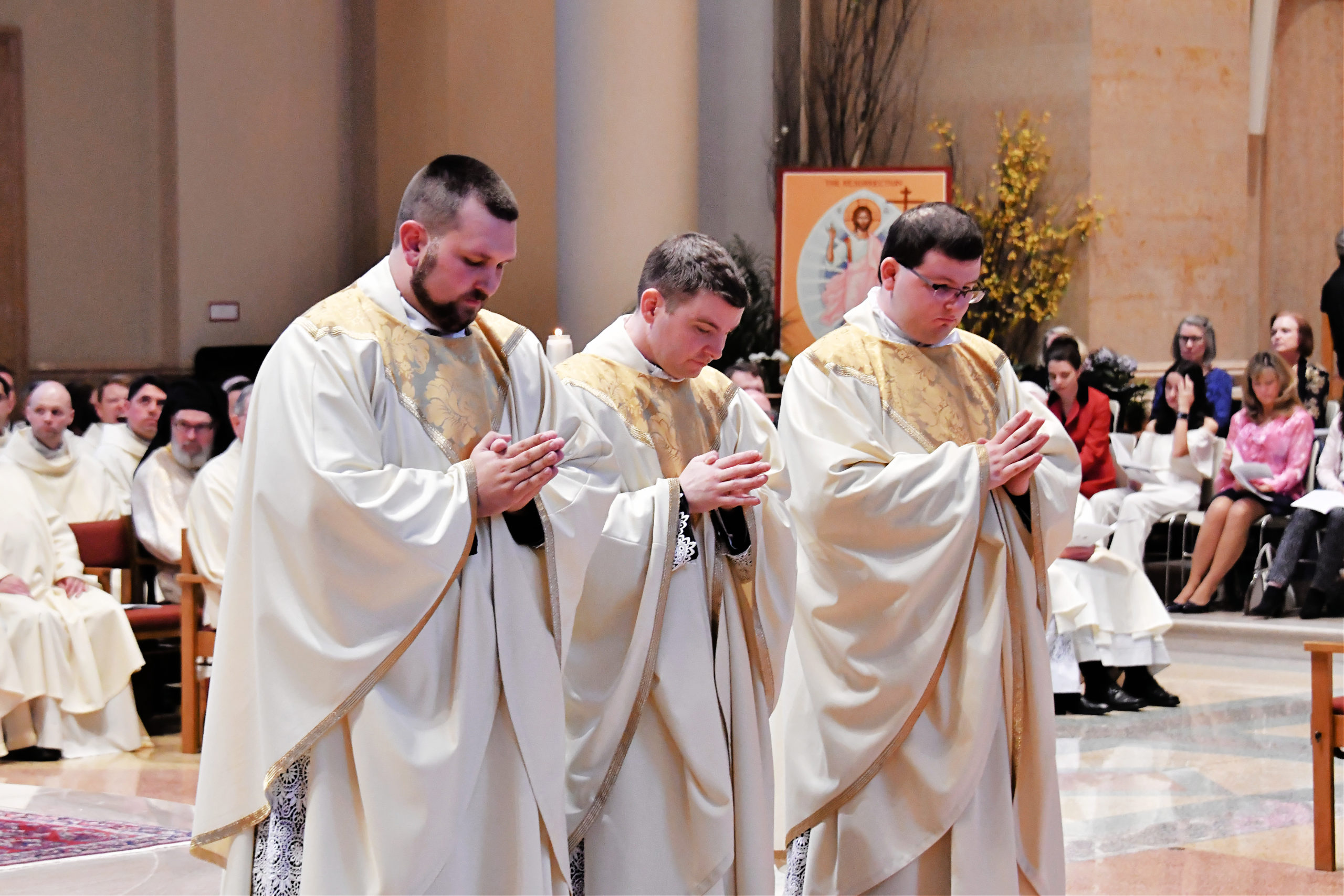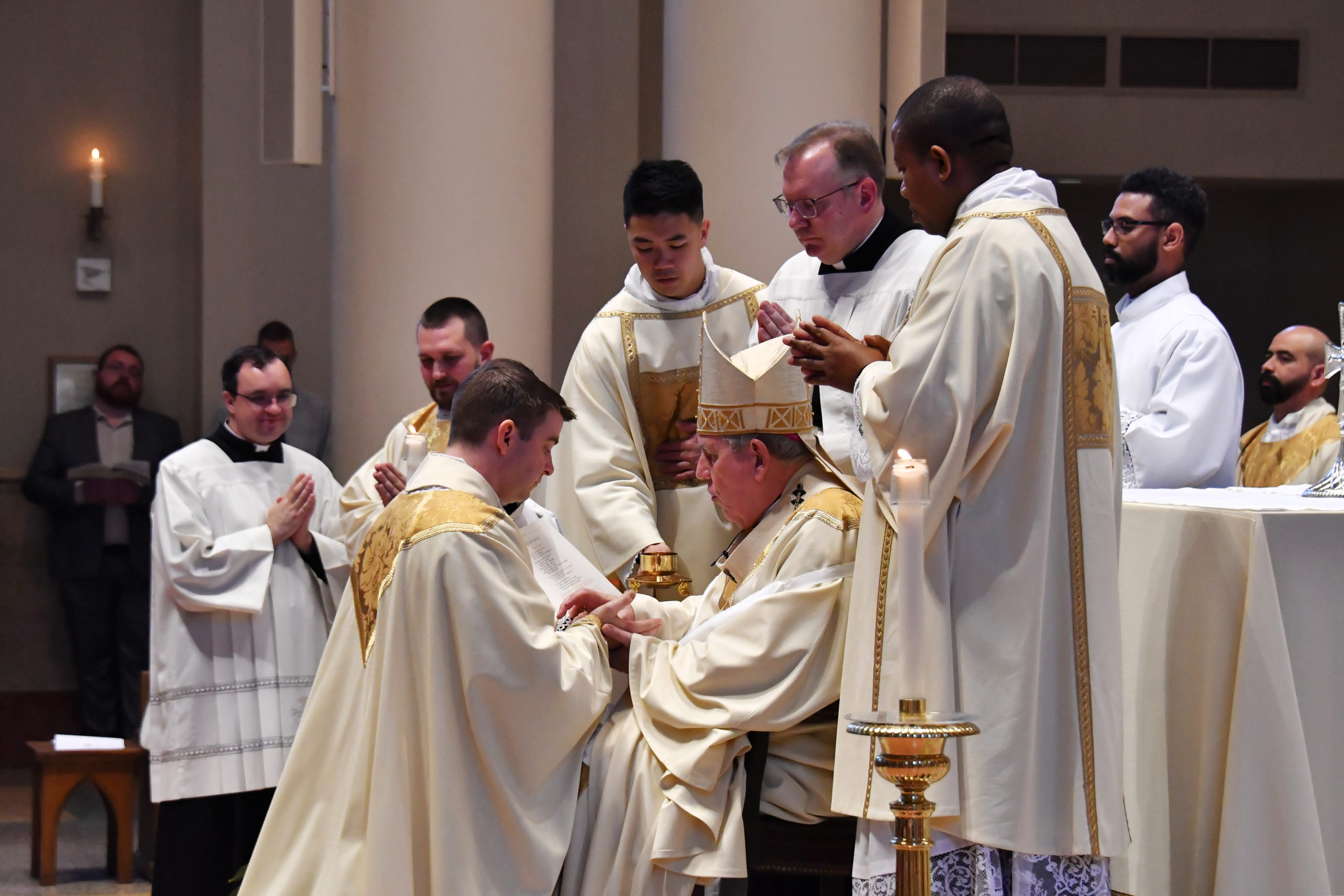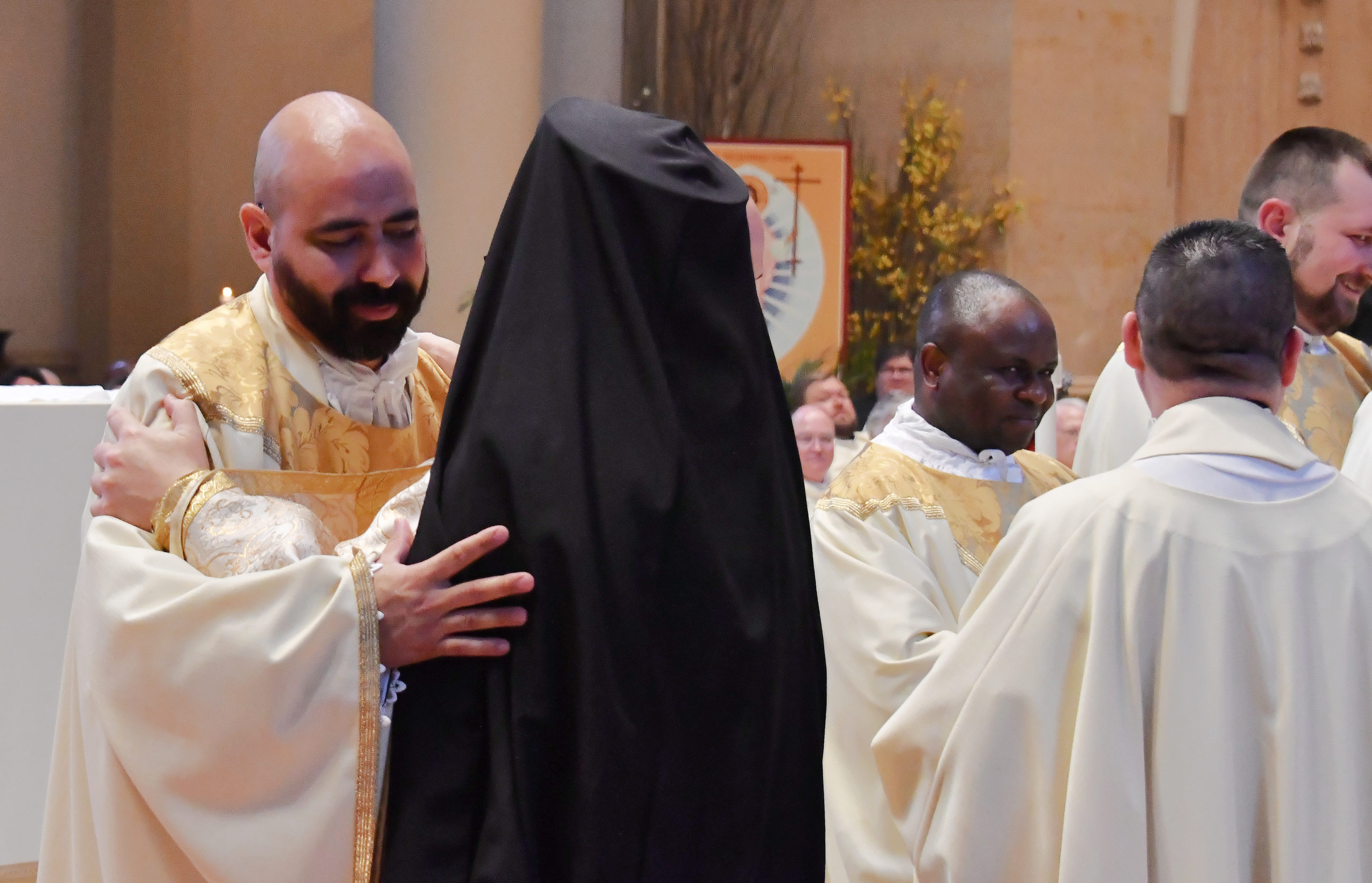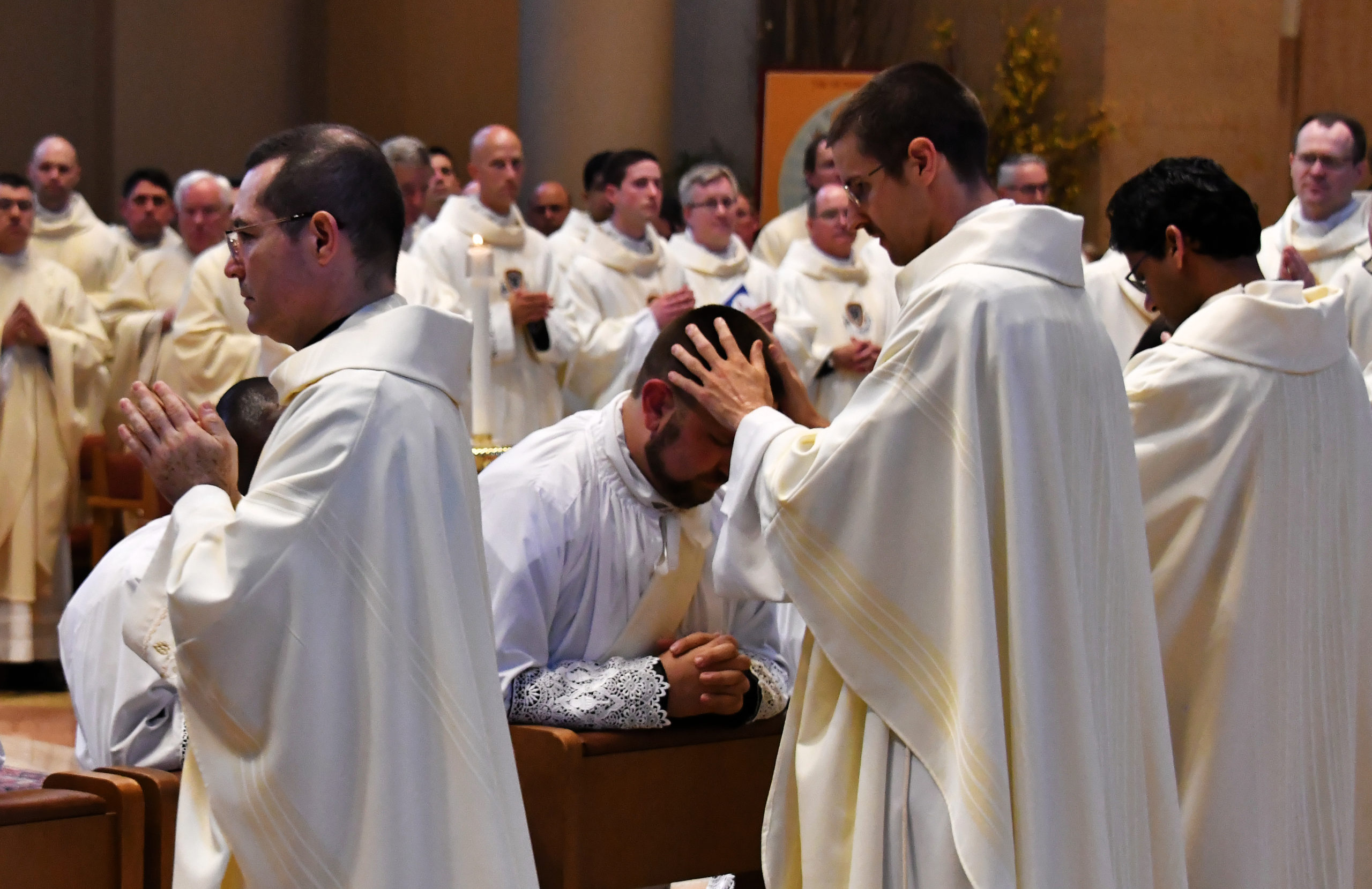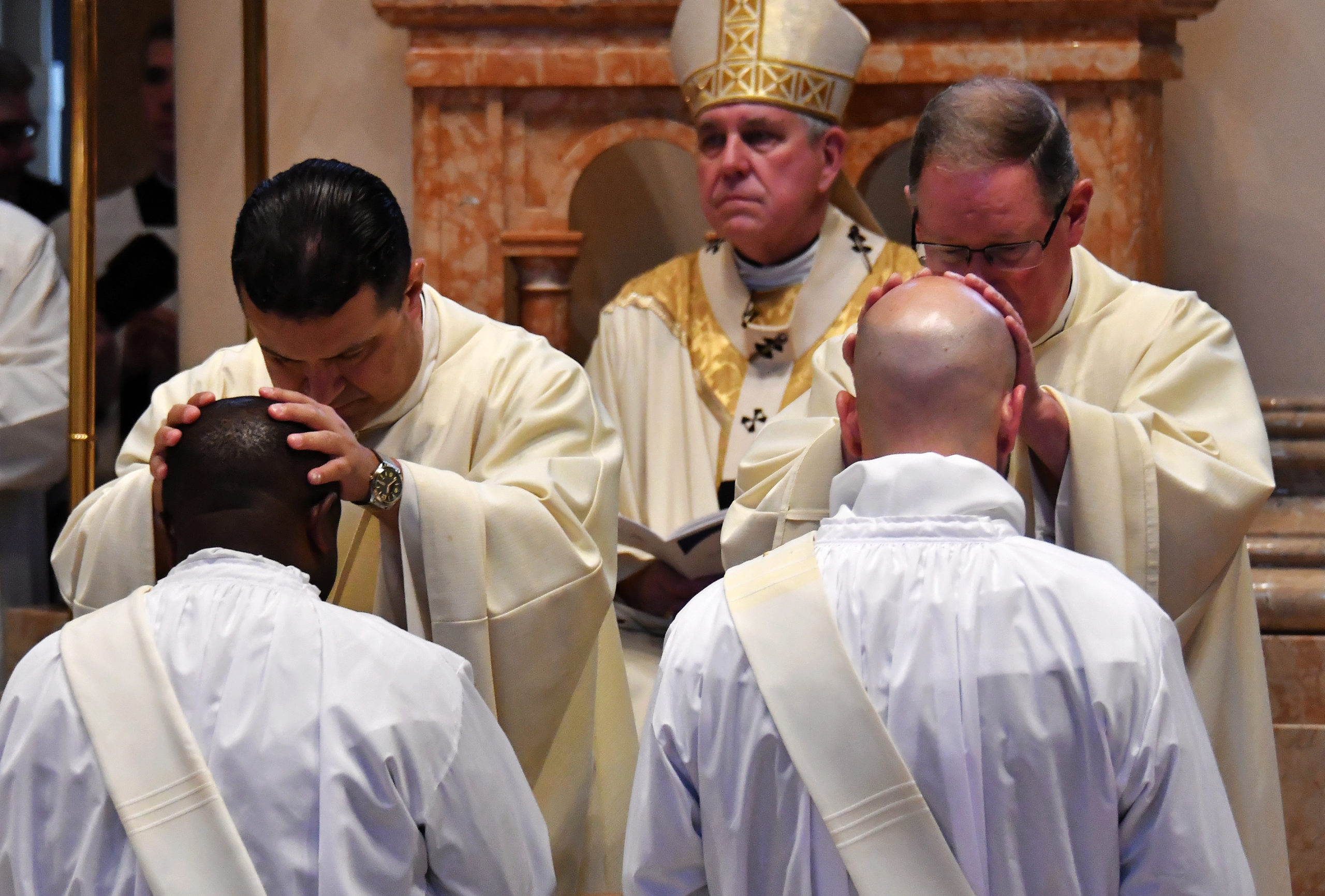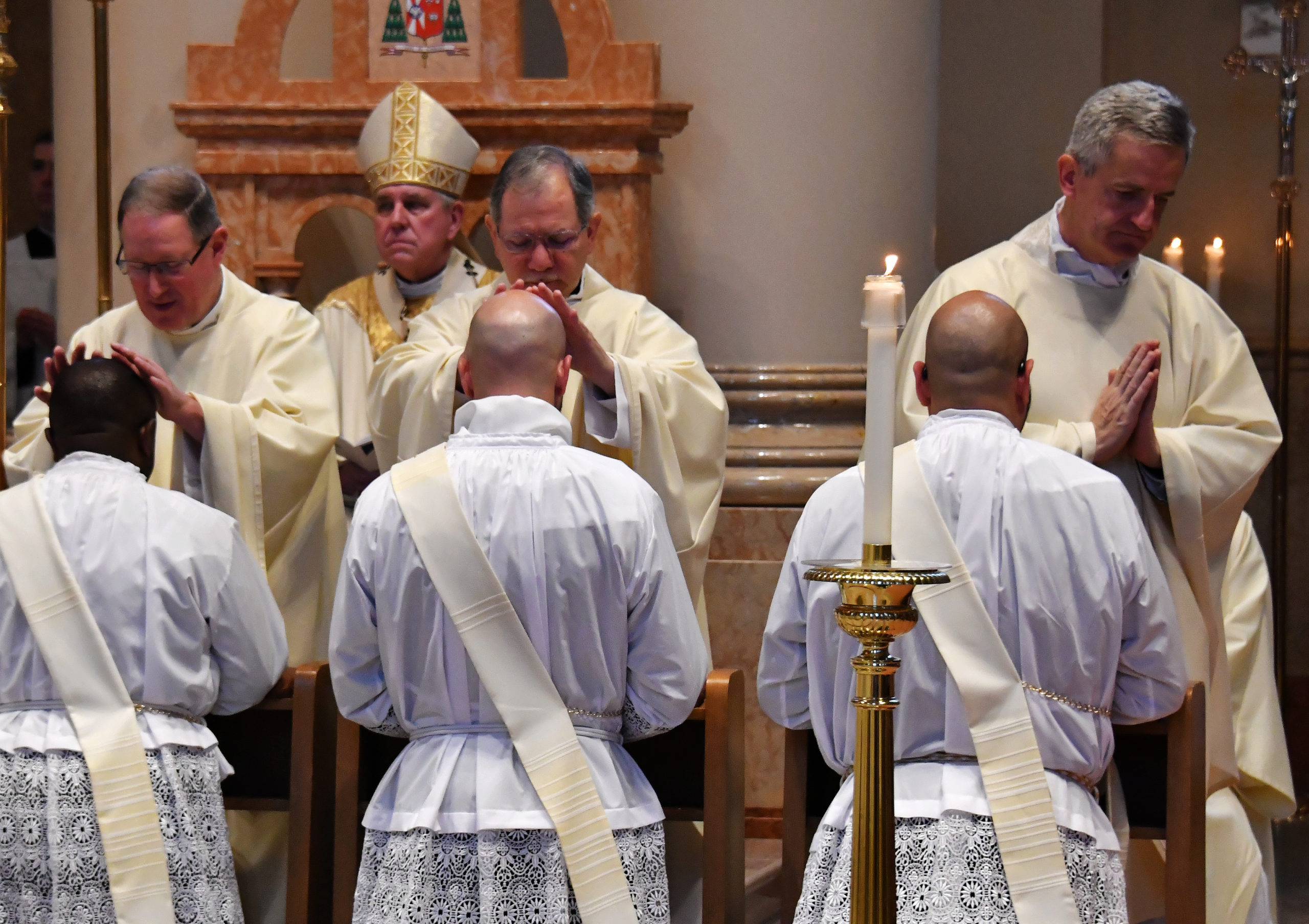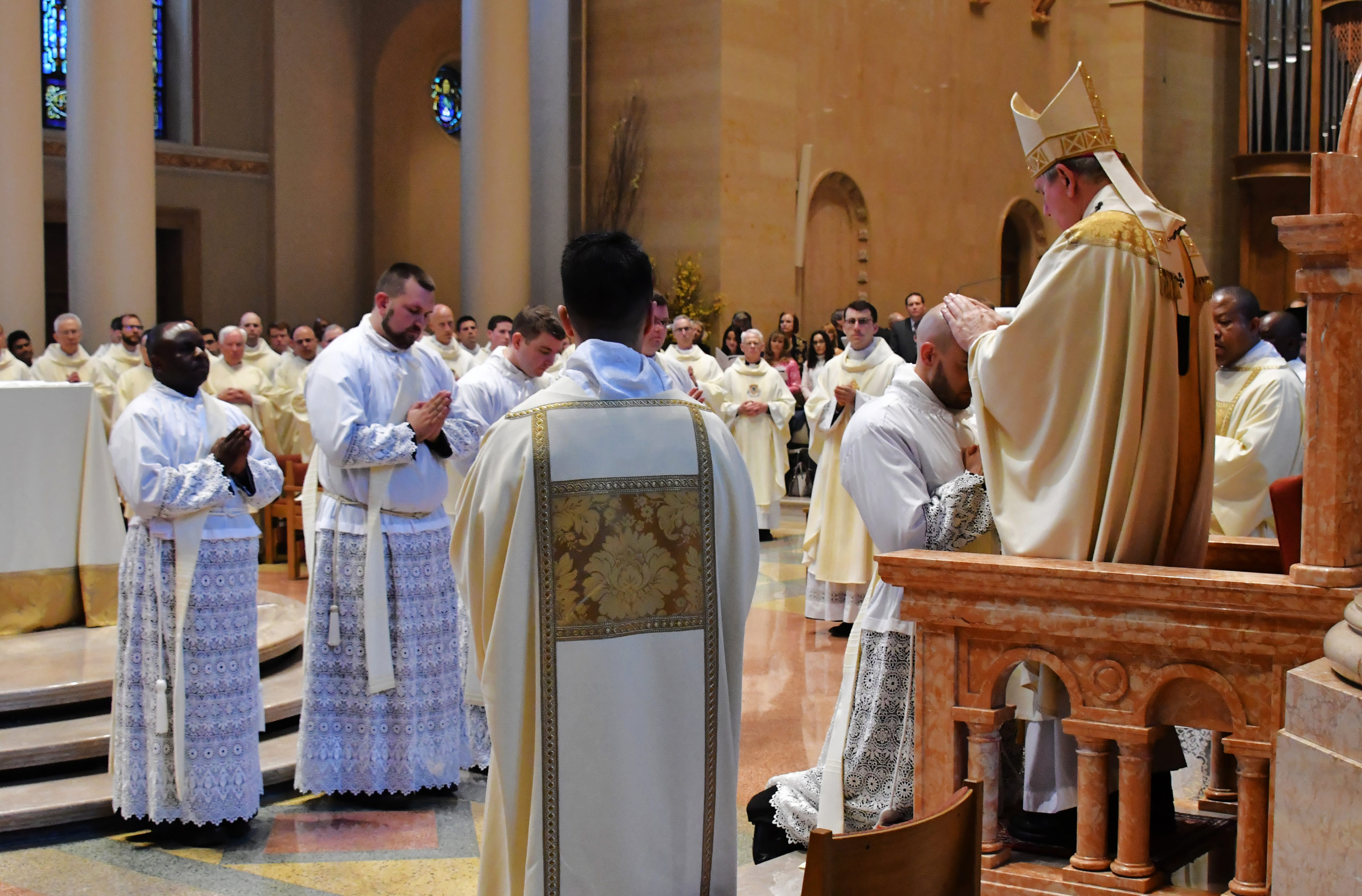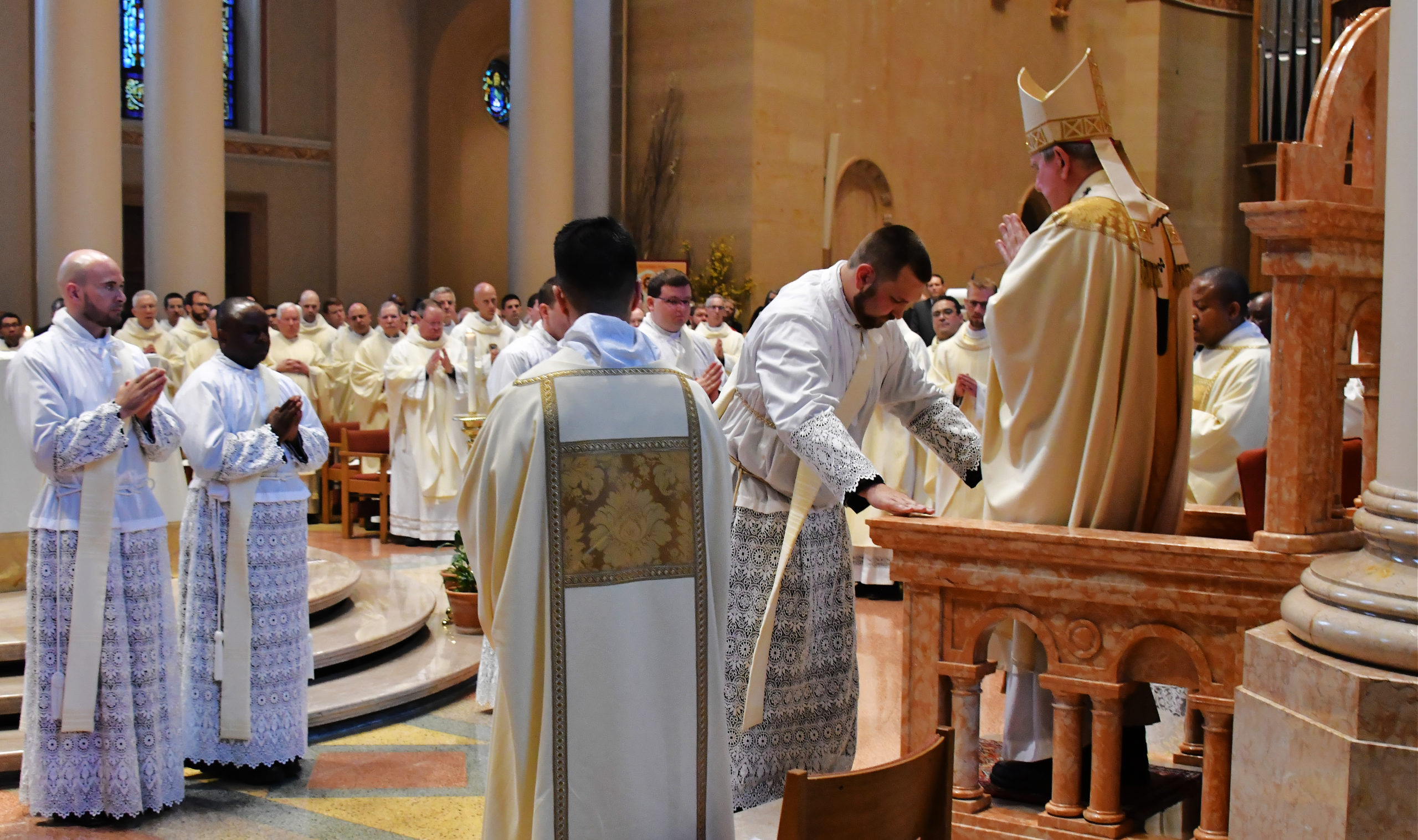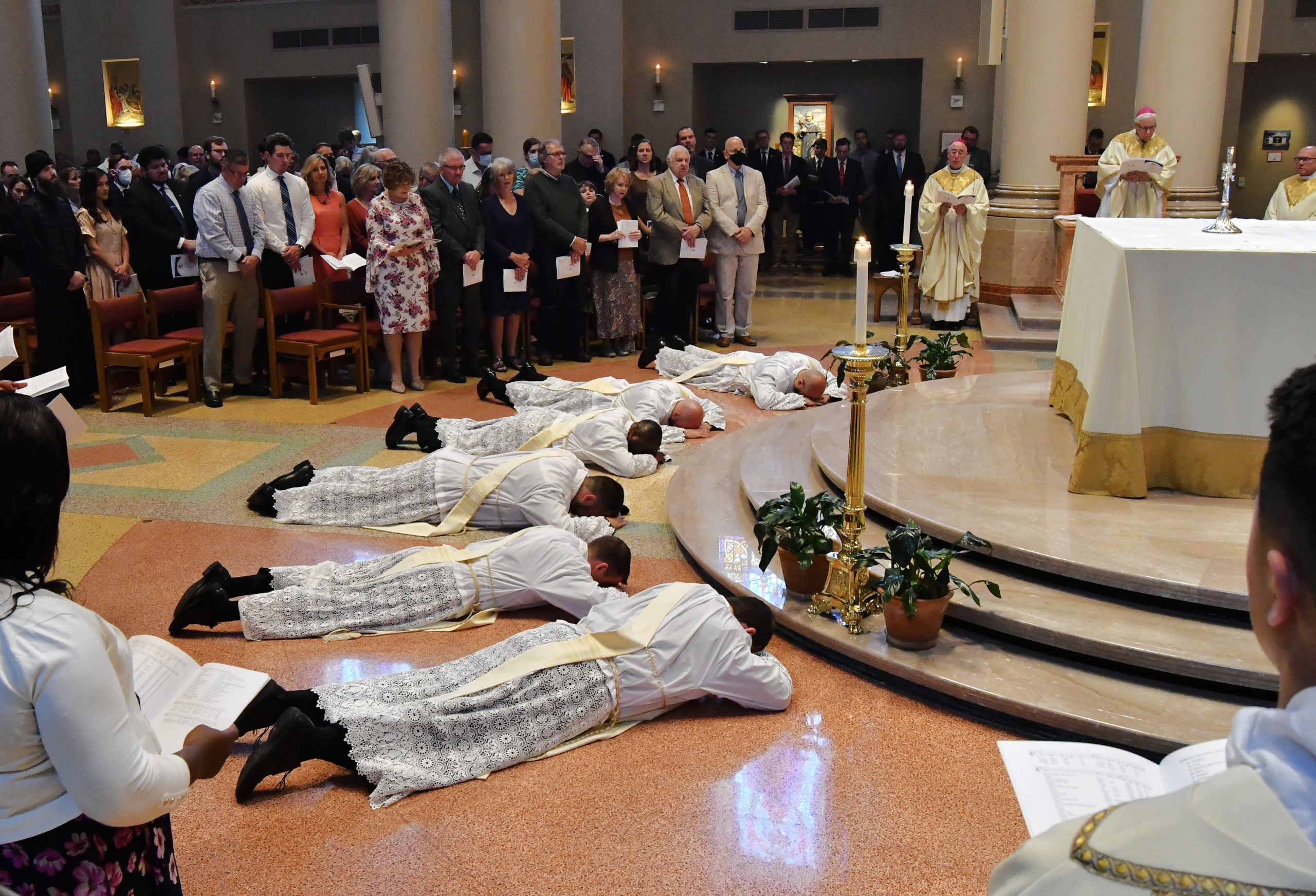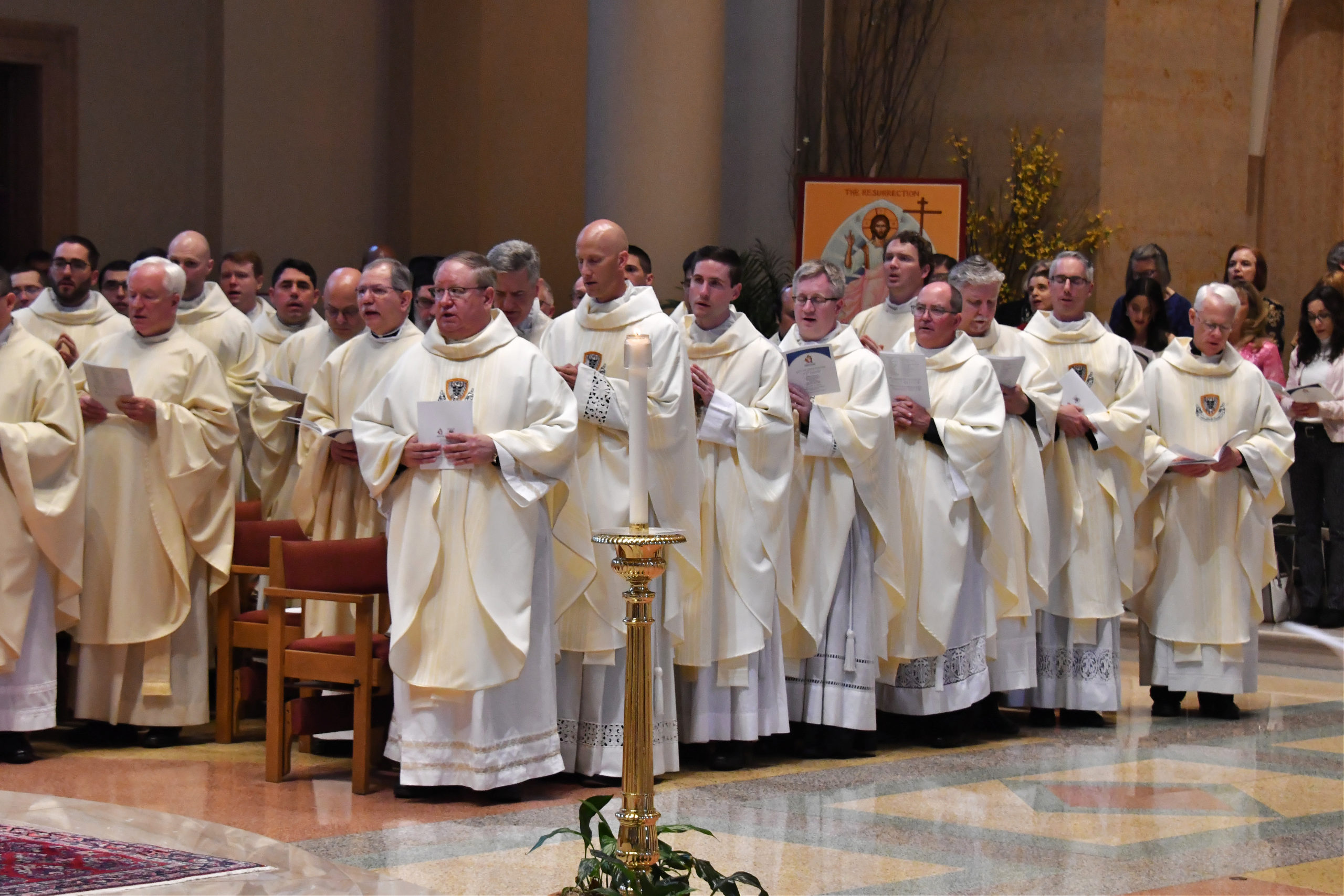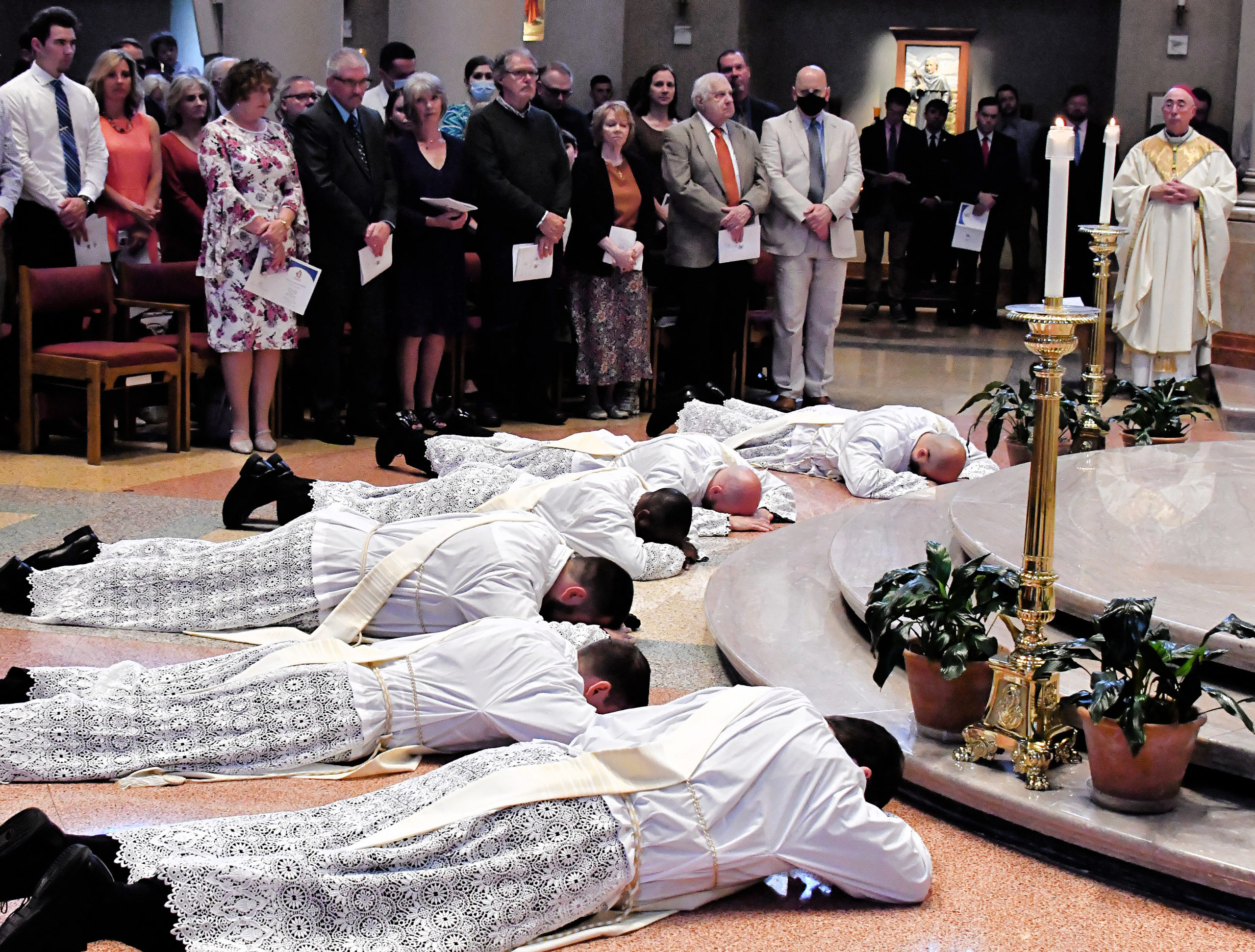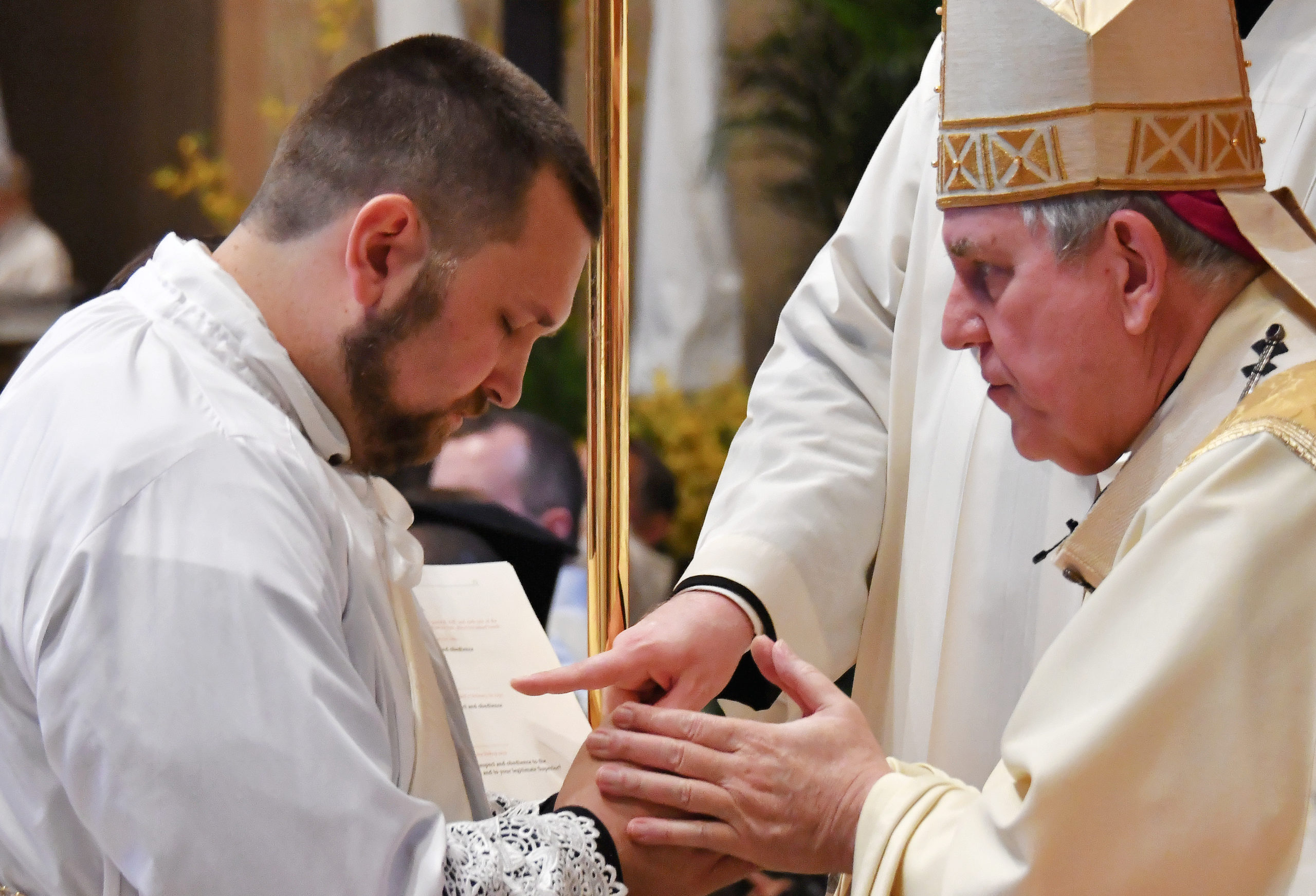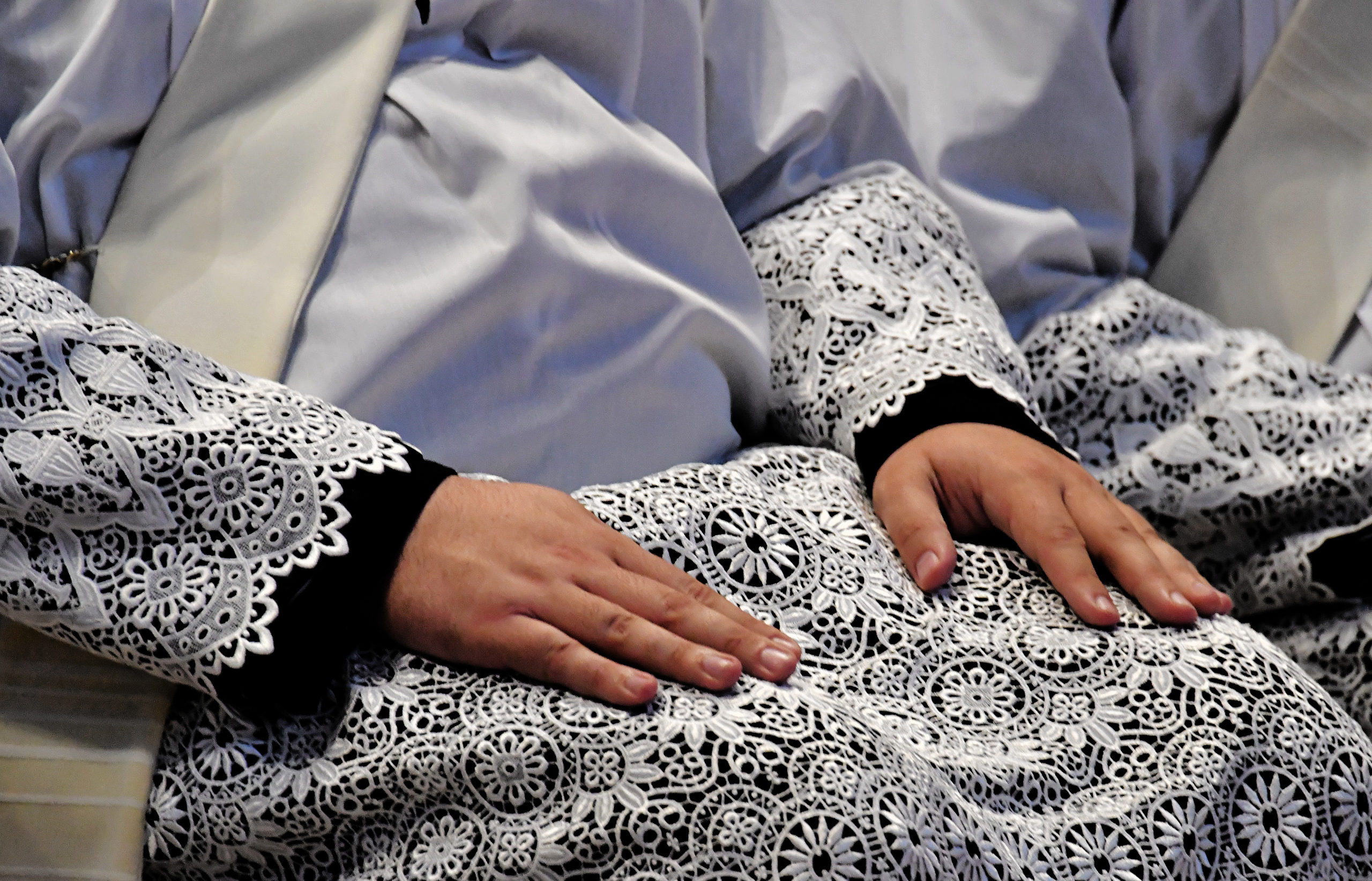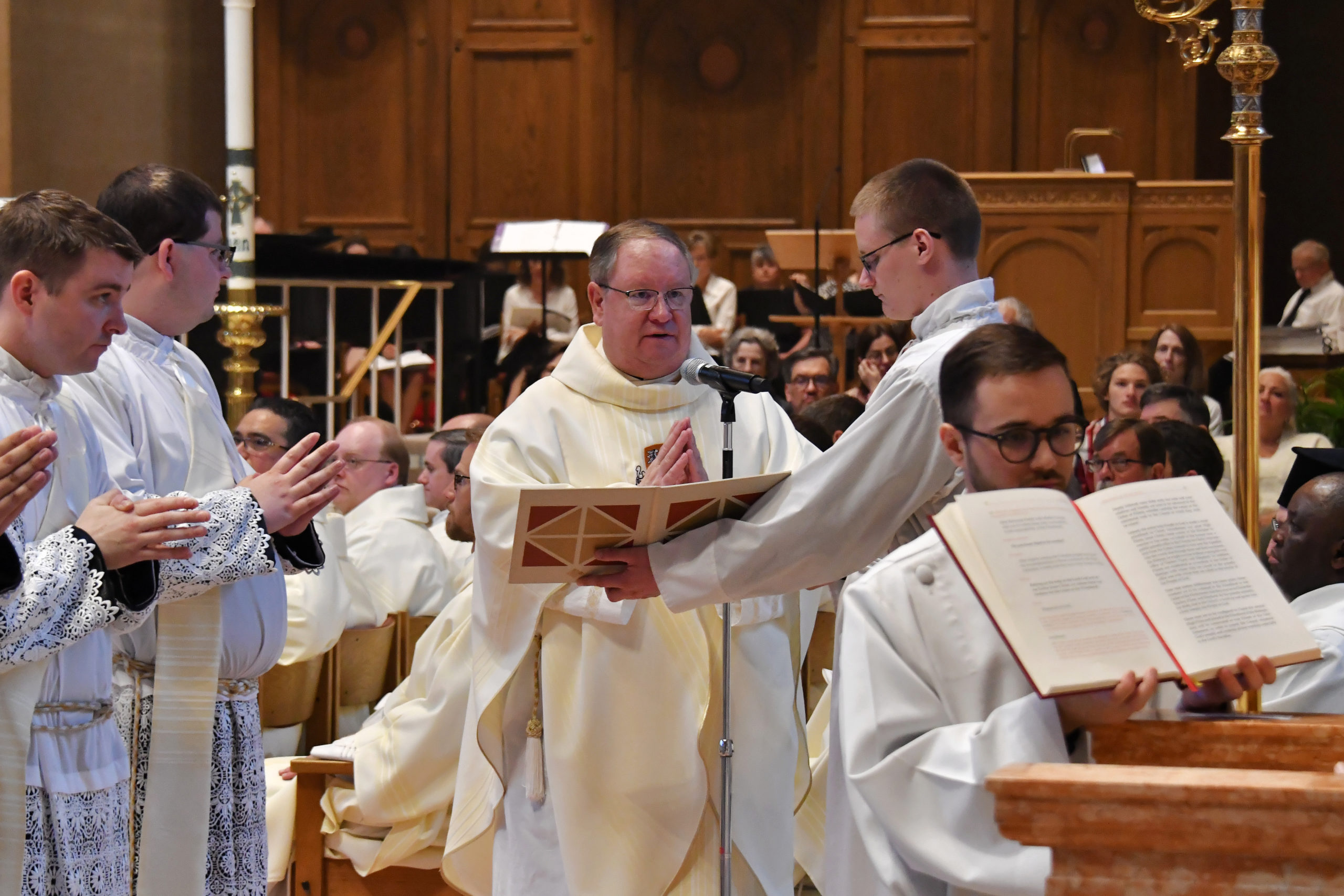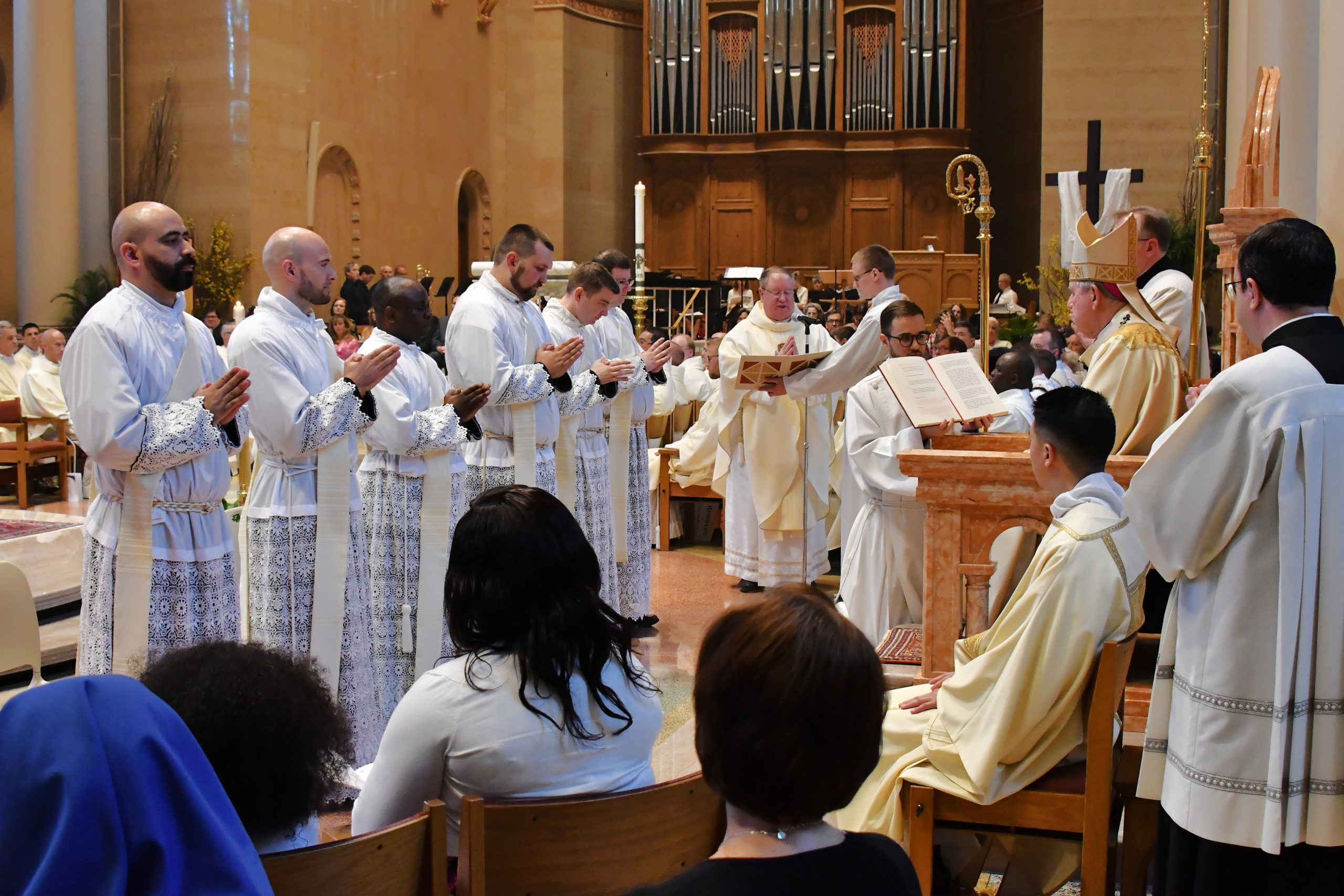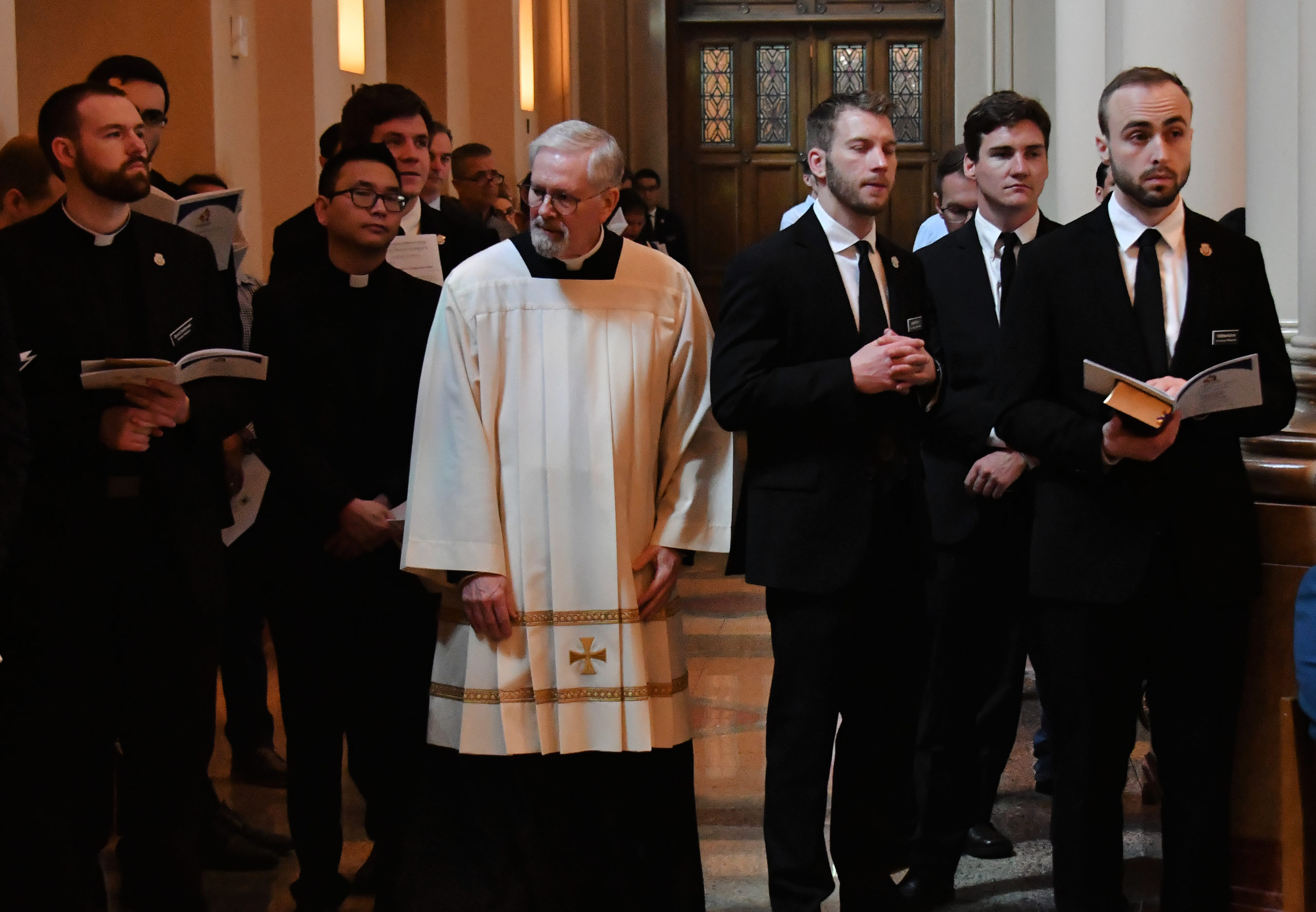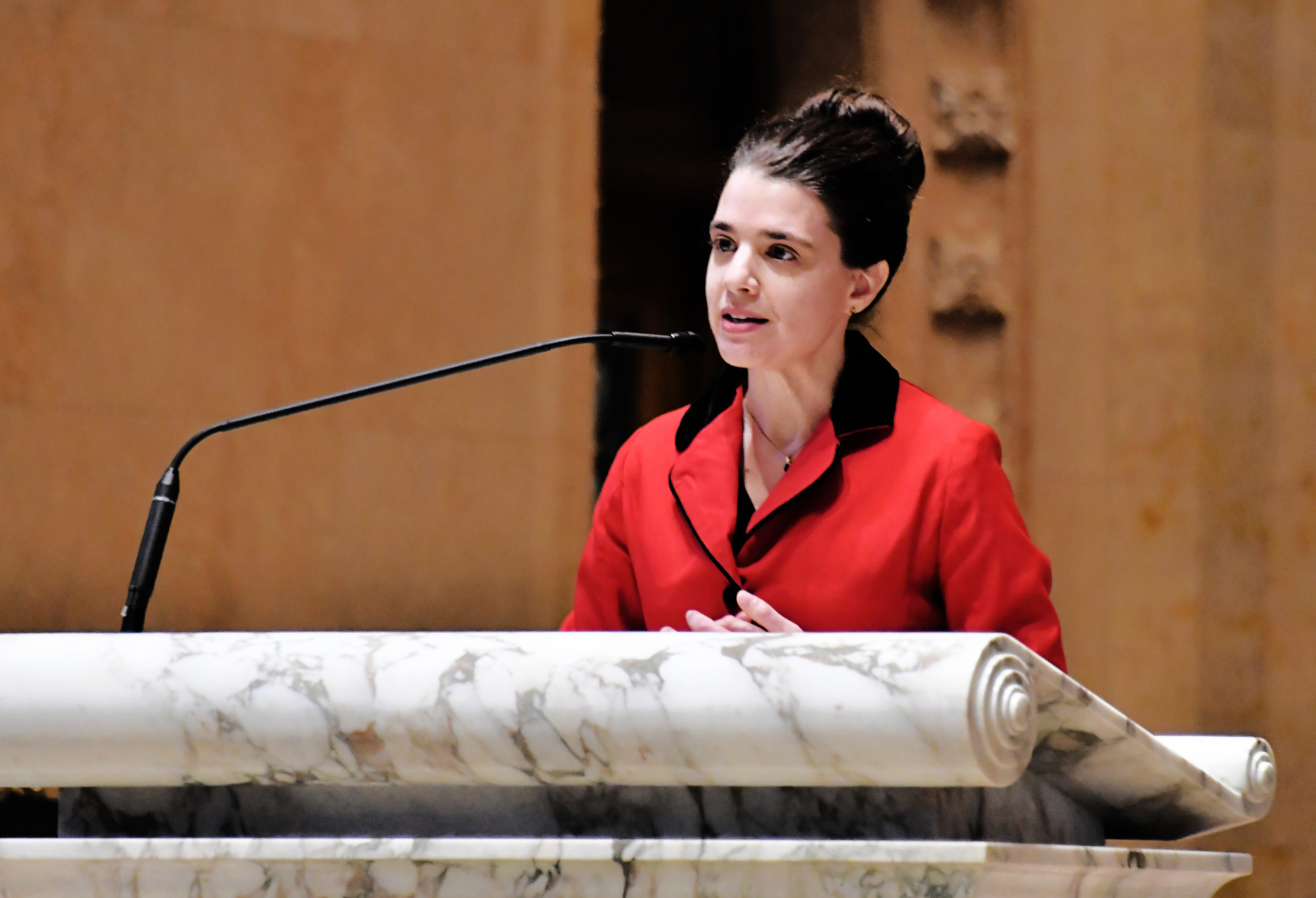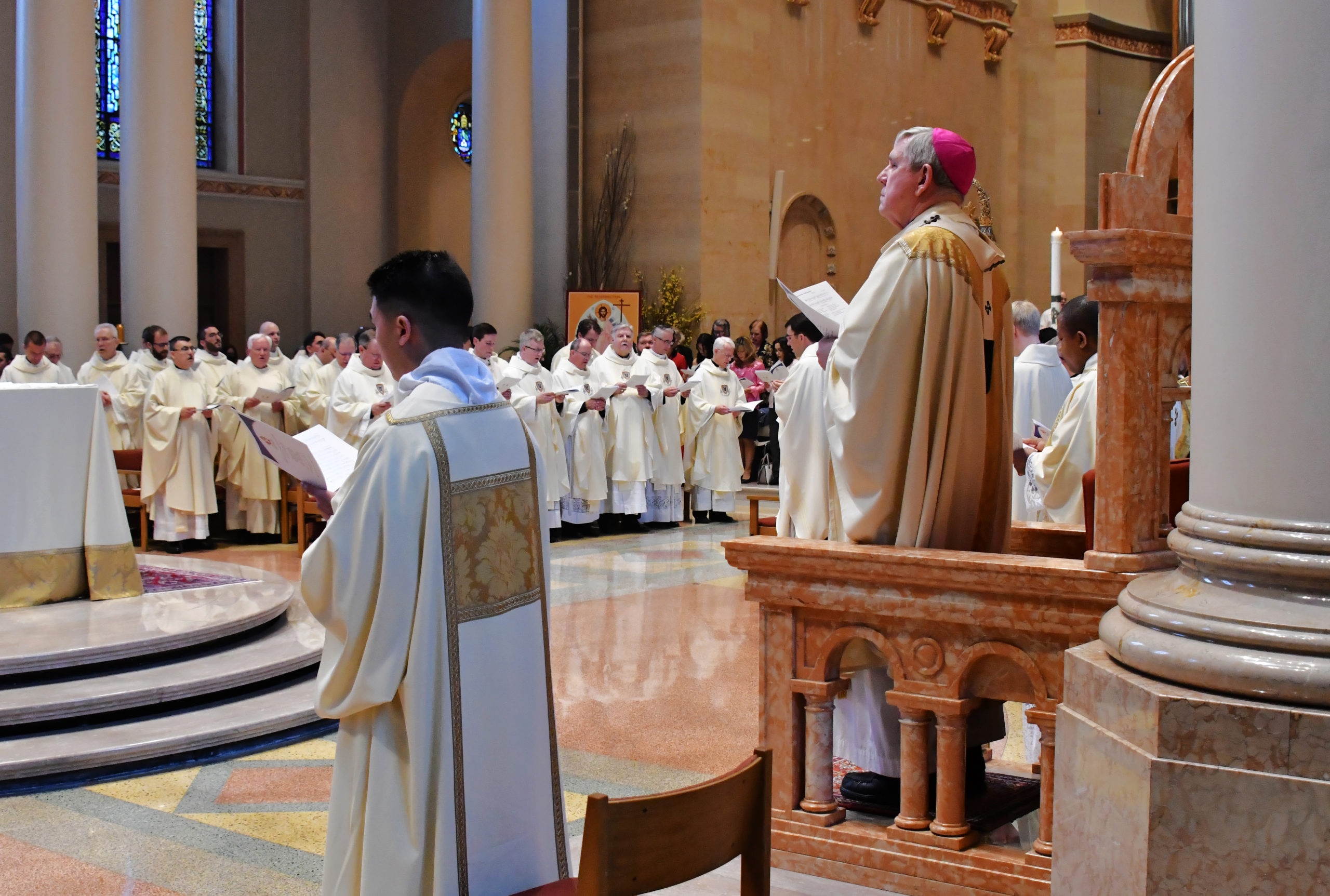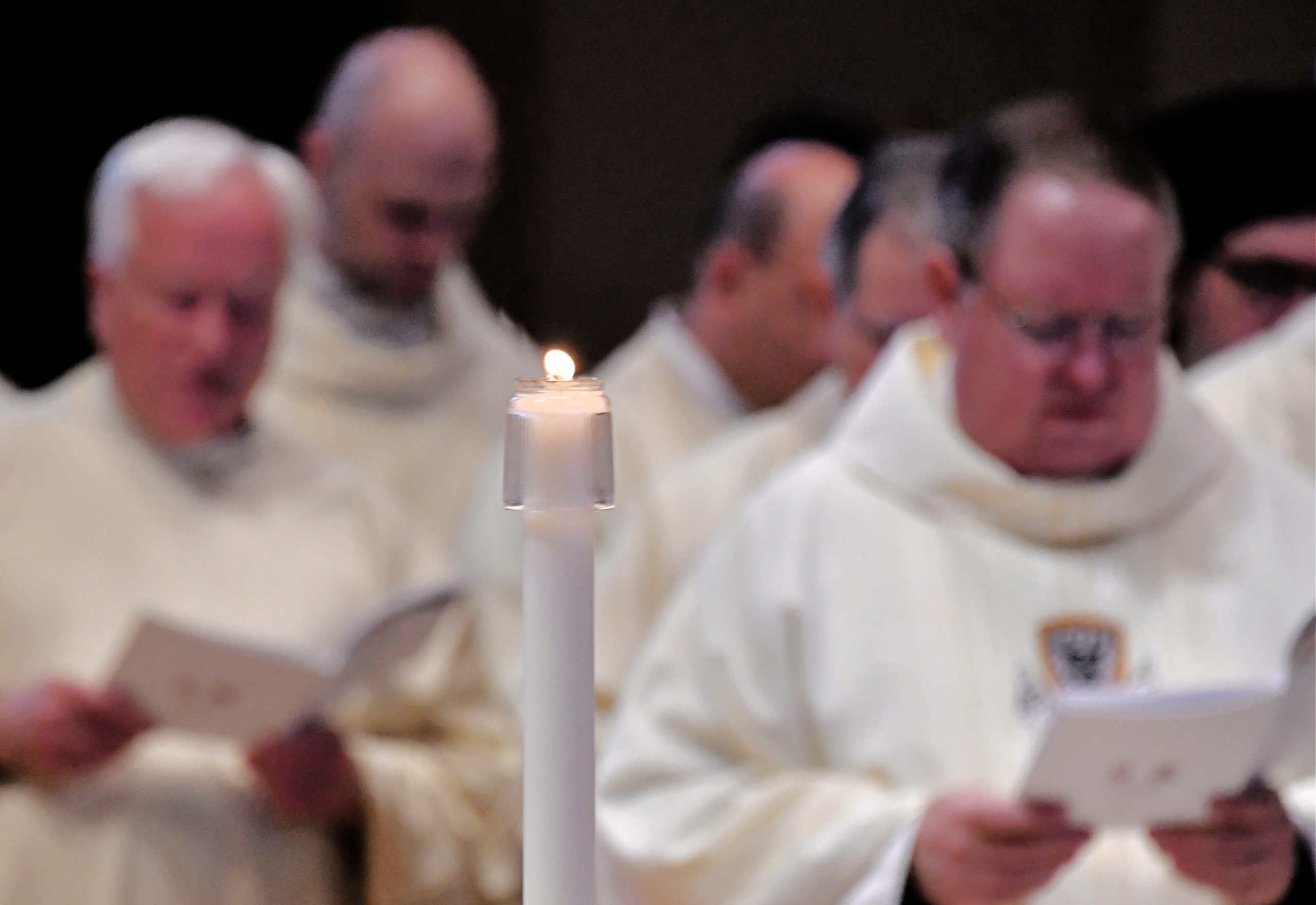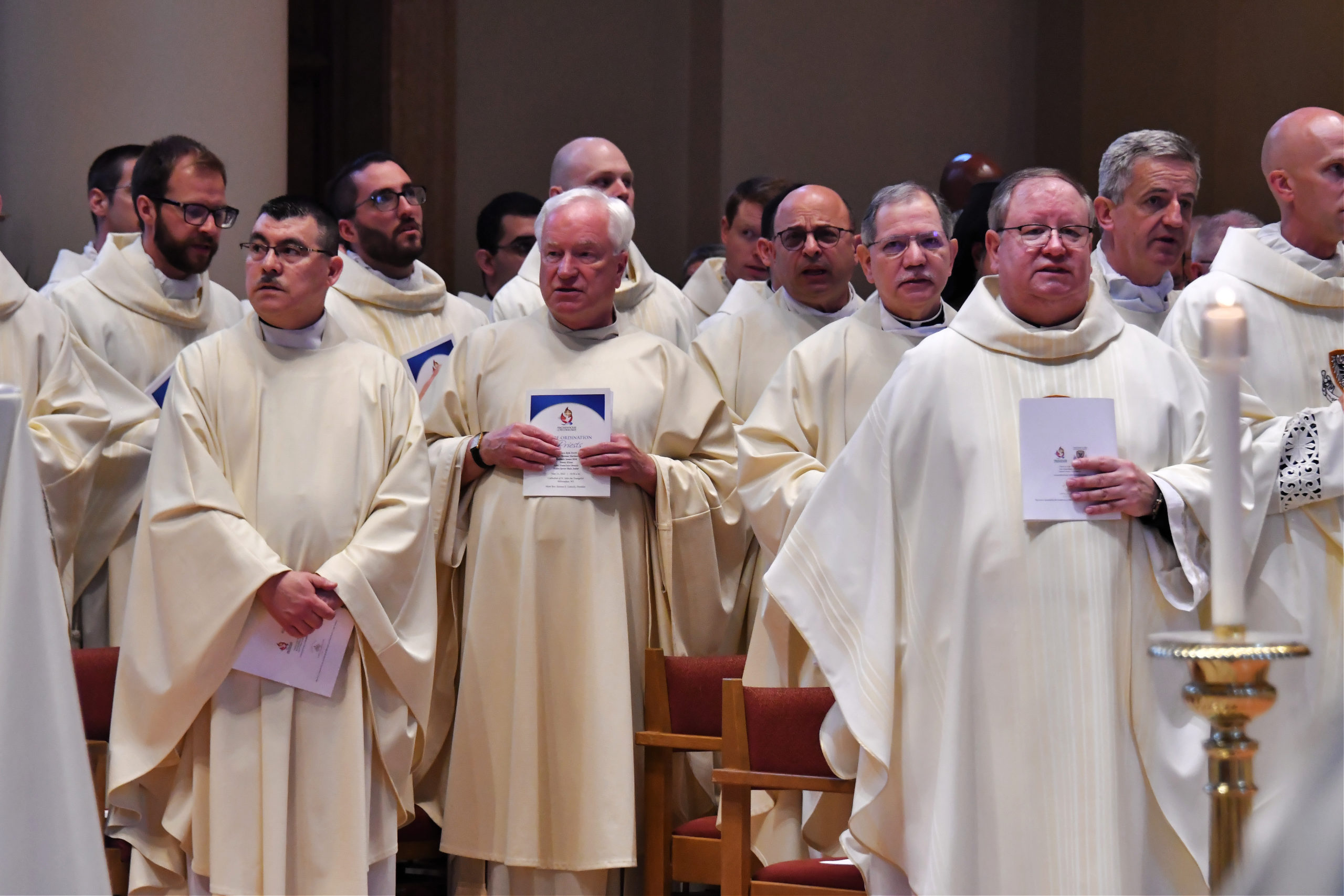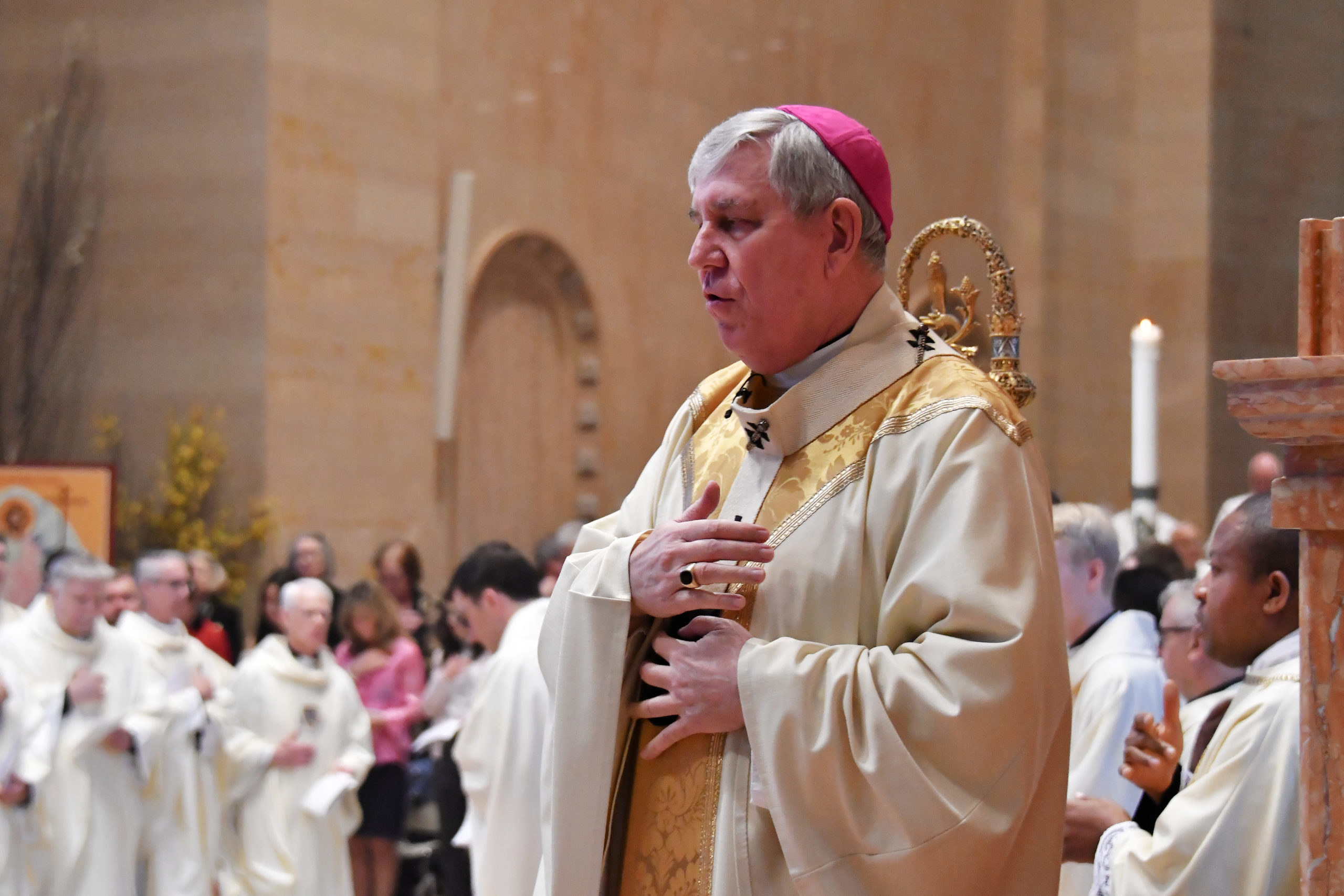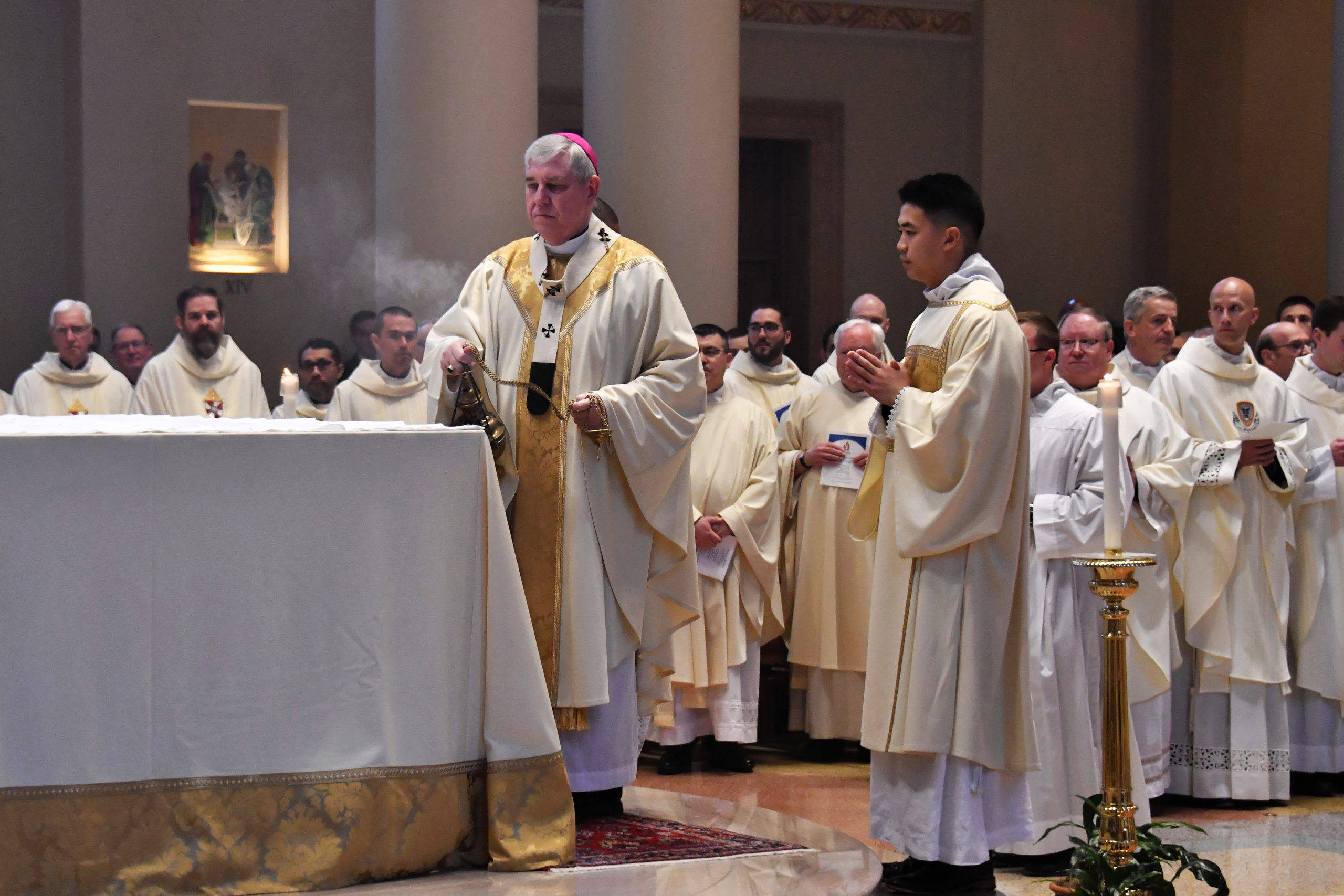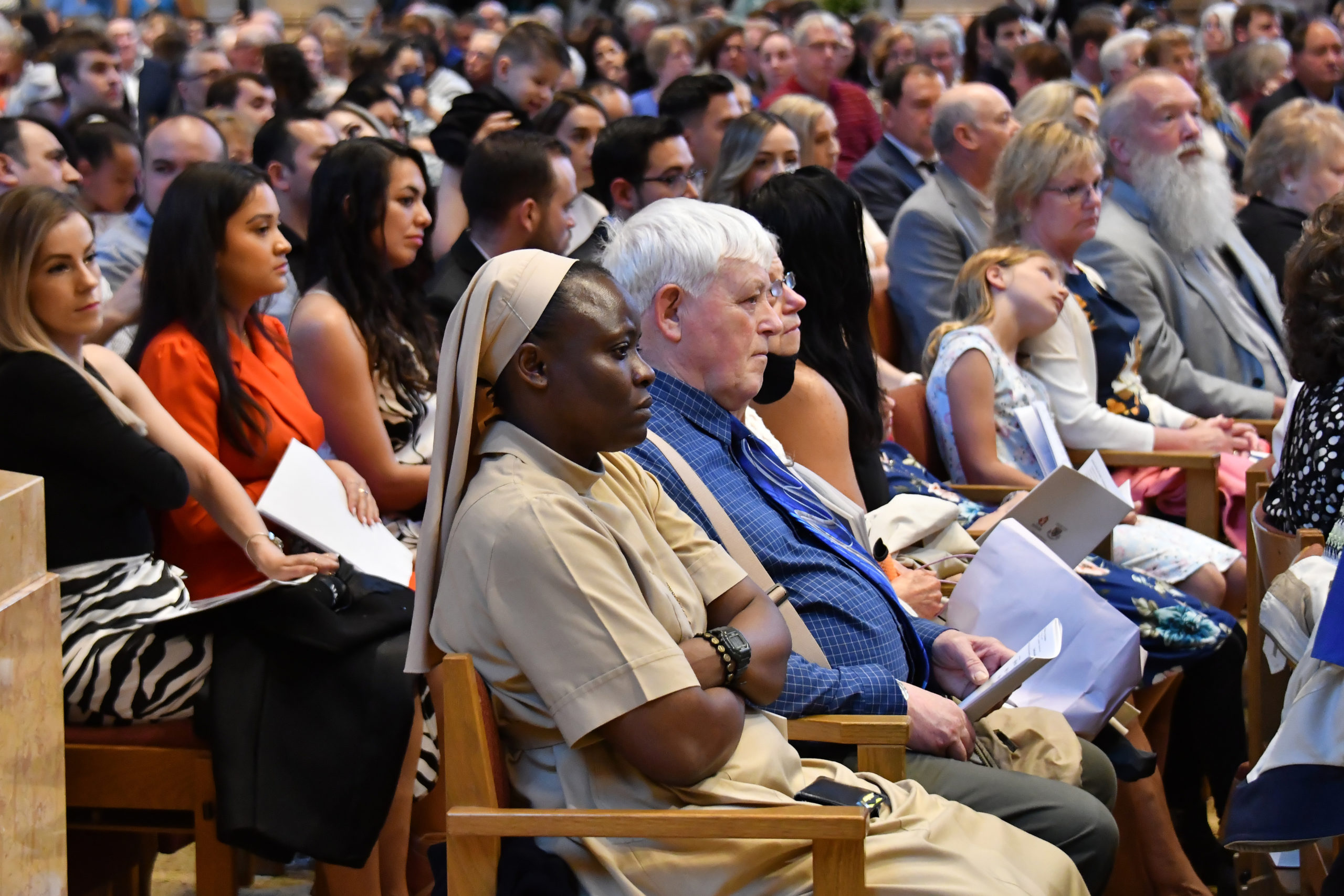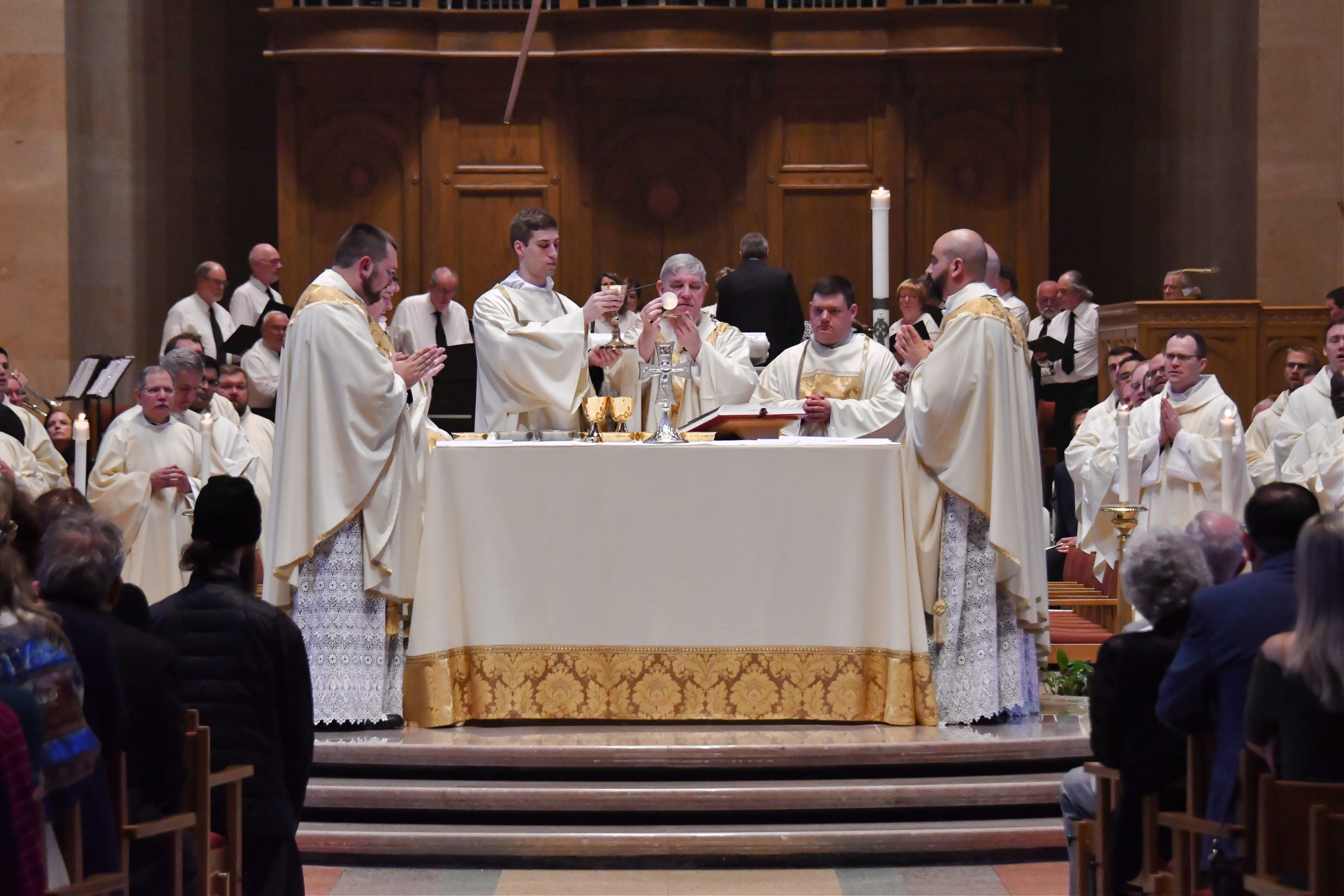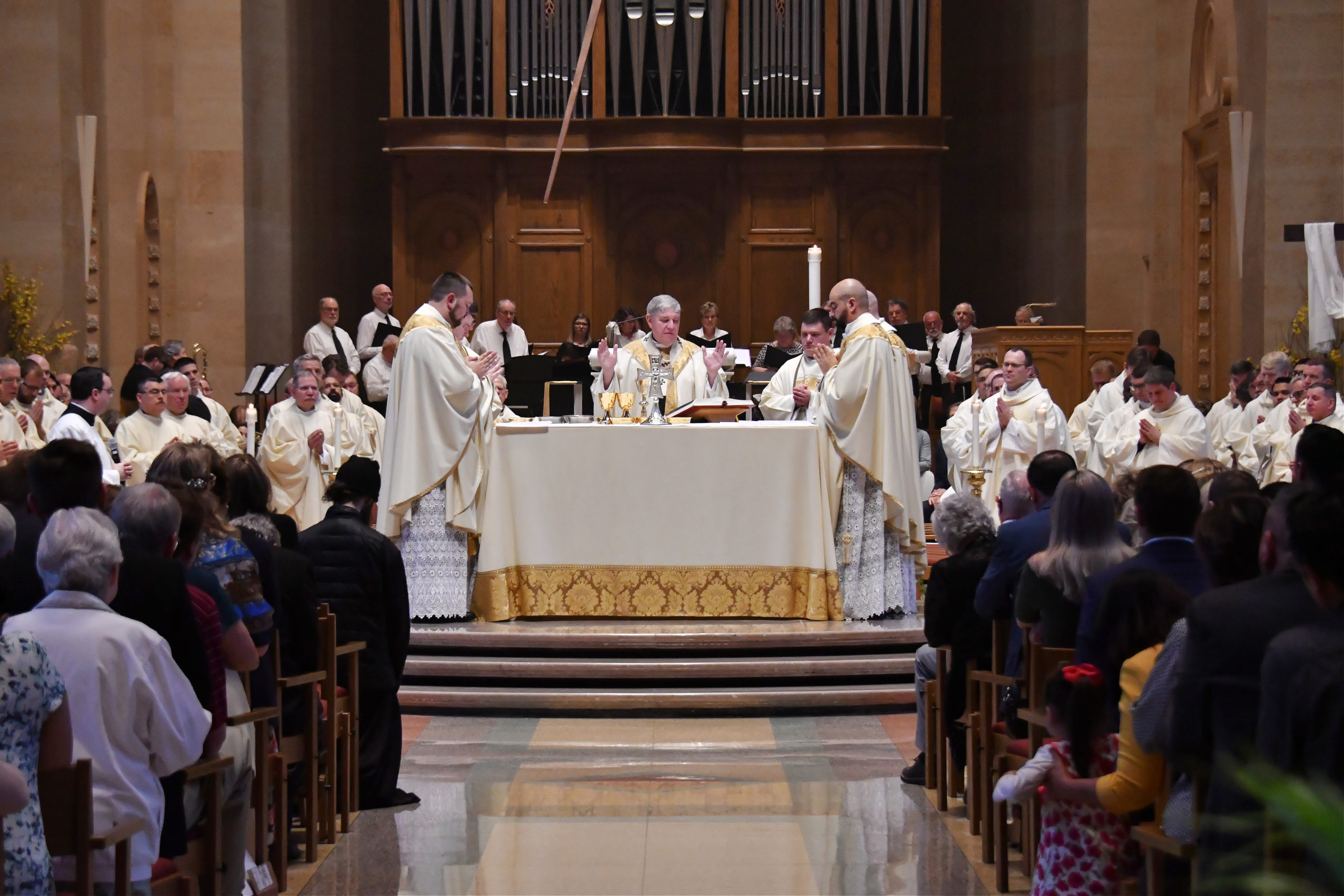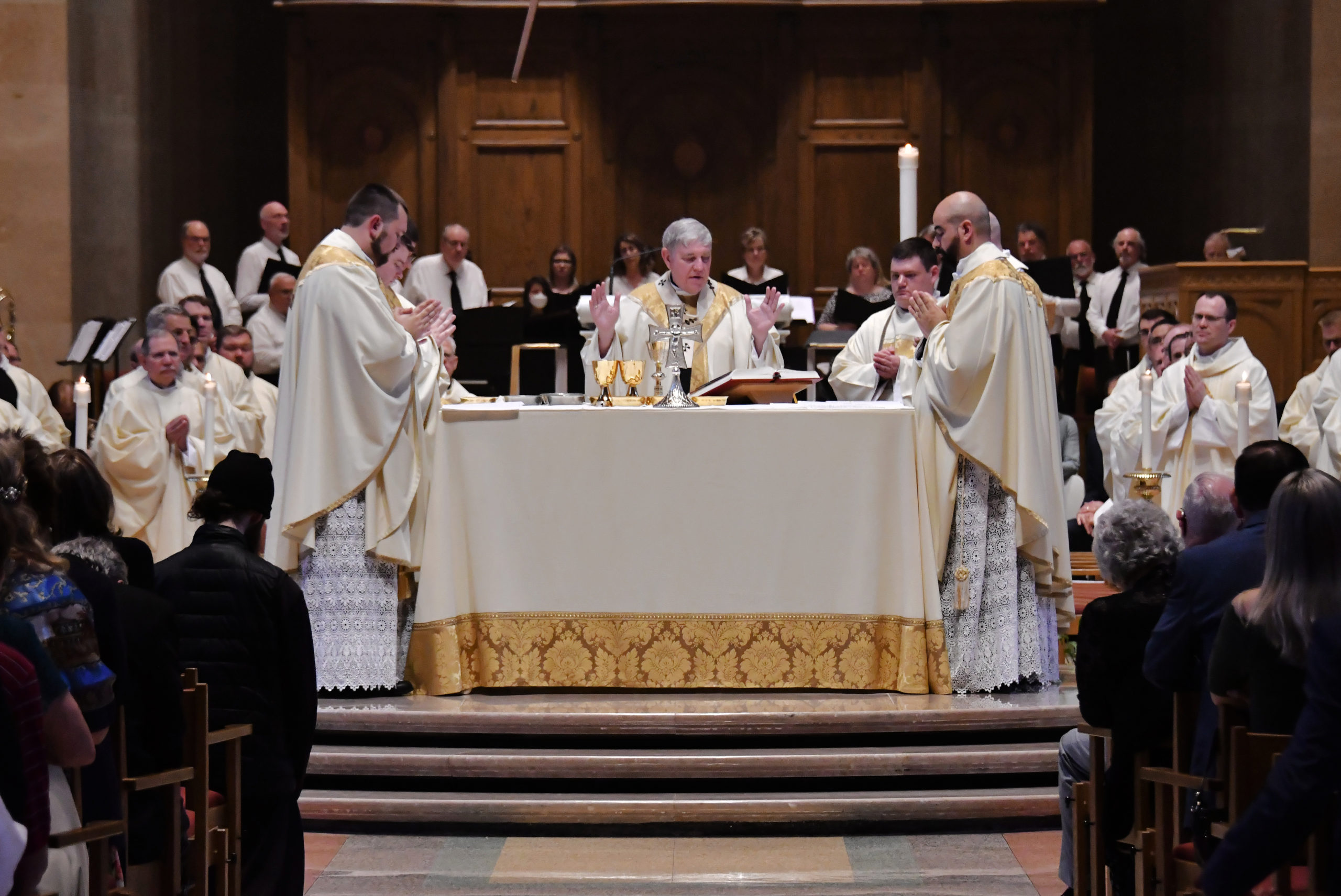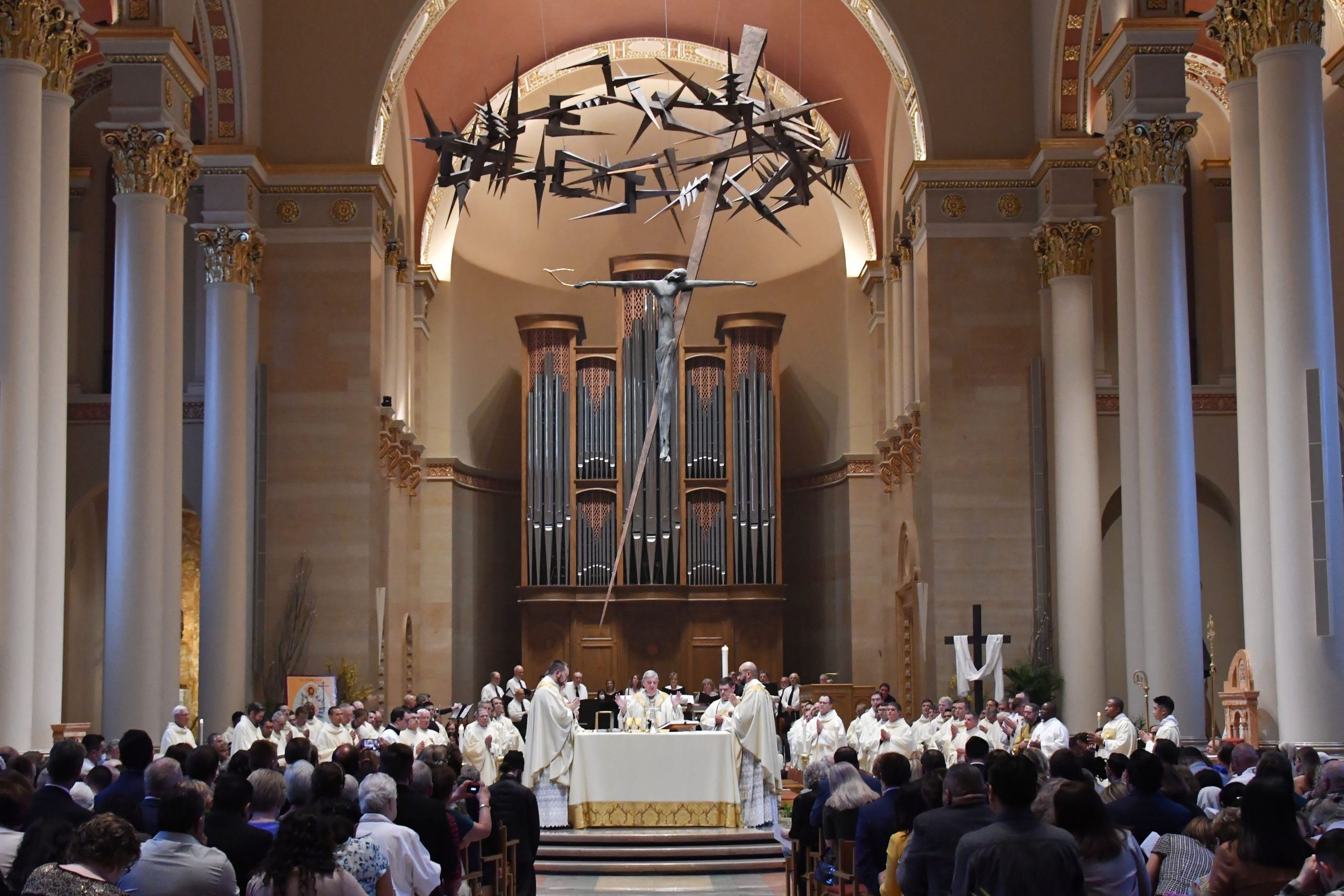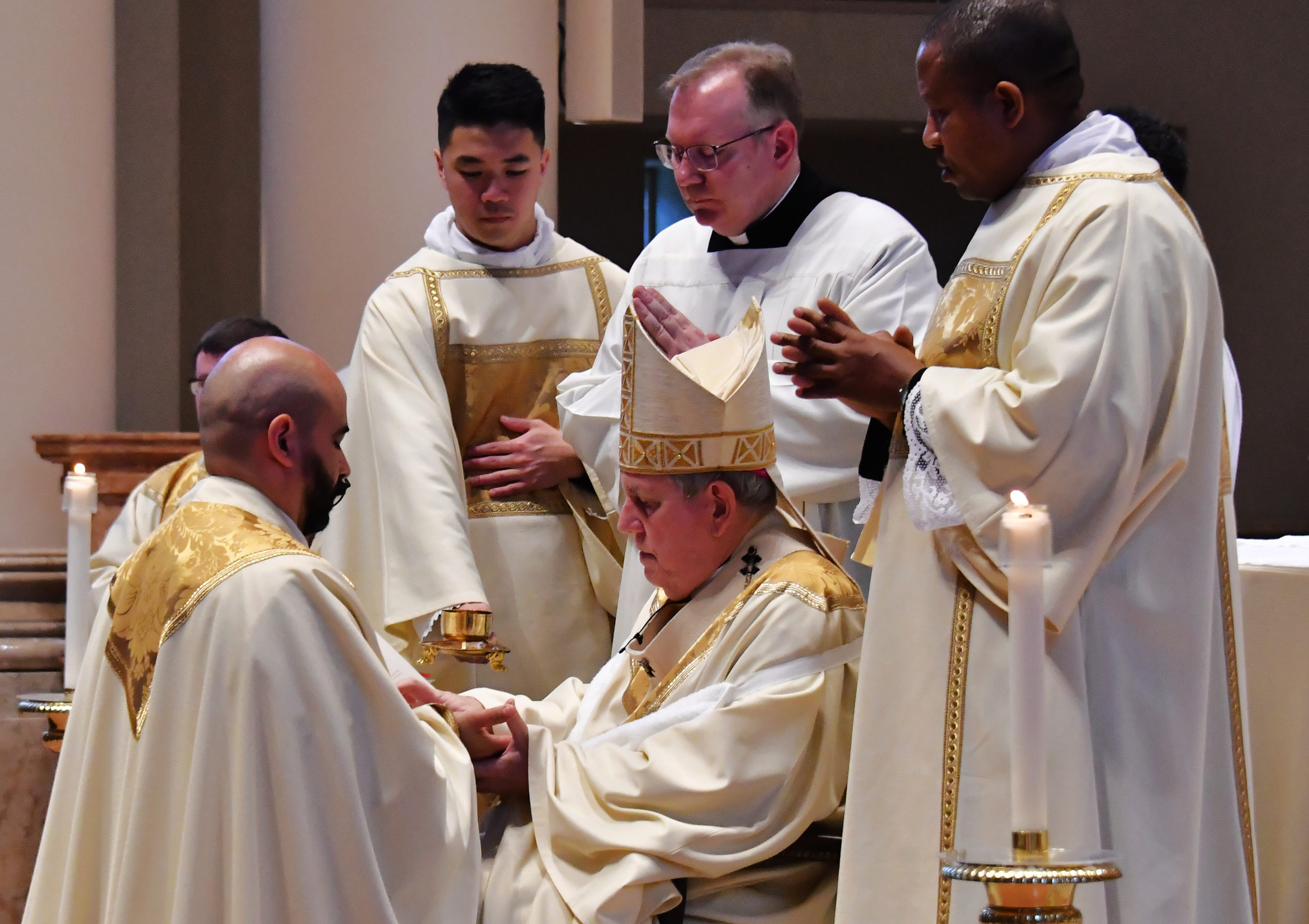
Fr. Pedro Ruiz was one of six men ordained to the priesthood on Saturday, May 21, at the Cathedral of St. John the Evangelist. (Photos by David Bernacchi)
Be holy. Love the Church. Confess your sins. Behold your mother. Be grateful.
Archbishop Jerome E. Listecki had these pieces of advice to share with the six men he was about to ordain to the priesthood of Jesus Christ the morning of Saturday, May 21.
“My brothers, the world needs the uniqueness of the priesthood you embrace this morning, because it is in need of mystery,” Archbishop Listecki said, just moments before the ordination of Fr. Pedro Ruiz, Fr. Kevin Harmon, Fr. Matthew Ferch, Fr. Tonny Kizza, Fr. Matthew Kirk and Fr. Ariel Orozco.
“We have lost the wonder of the divine presence, and you, my sons, can assist our brothers and sisters in understanding that we were created for more than this world can imagine.”
Archbishop Listecki offered the ordinandi “brief directions” that would be useful in “living for the Lord totally and completely.”
“One, be holy priests,” he said. “Have Christ as the center of your lives. This means a consistent prayer life and reflections on the Scripture.
“Second, love the Church and continue to study her teachings and integrate them into your preaching and presentation. Be confident. This is the Church founded by Jesus to lead us to salvation.
“Three, make the sacrament of reconciliation a basis for understanding God’s mercy in your life.
“Four, don’t forget Mary as a model of faithfulness. She loved her son, and I assure you, she loves her son’s priests.
“And lastly, be men of gratitude, recognizing that God has given you his love,” concluded the archbishop. “We could never earn it, and certainly we don’t deserve it, but we know that his love must be shared.”
Archbishop Listecki acknowledged the six men had come from different backgrounds and from all over the globe to answer the question posed by Christ in the morning’s Gospel reading: “Do you love me?”
“It all begins with love — first and foremost, God’s love for us, which is demonstrated through Christ’s sacrificial love on the Cross,” said the archbishop.
If, like Peter, the priest’s answer to Christ’s question is “yes,” then it must be given not just with a word but with action, said the archbishop.
“Our Lord directs us to share his love by serving the faithful of his Church, as he states: ‘Then feed my lambs.’ In feeding, we offer what is essential to live. This food will be the very person of Jesus, which you as priests will provide for the faithful (whom) you will be called to serve. In the words of the sacred scripture, which you will proclaim and explain for your people, they will be fed. In the sacraments that you will administer, they will receive grace. They will be fed. In the Eucharist which you will celebrate, you will share the real presence of the Lord, the bread and wine which will become his body and his blood — they will be fed. In the charitable acts that you perform in his name, they will be fed. You must always challenge yourselves to live for others in Christ’s name. And this in turn will feed you.”
The archbishop went on to note that Christ posed the question “Do you love me?” to Peter, and not to any other disciple. “It is Peter who is the leader of the Apostles, Peter who is the rock upon which the Church is built, Peter who declared at Caesarea Philippi; ‘You are the Messiah, the son of the Living God’ — but it is Peter who will be embarrassed by the Lord’s declaration of suffering and death. It is Peter who will deny him three times, and it is Peter who will abandon him at Calvary,” he said.
Every priest who follows in Peter’s footsteps must be willing to acknowledge that same humanity, that same capacity for sin and failure and that same need for mercy.
“It is in recognizing the need for the mercy of the Lord in our lives that we experience the great acts of His love,” said the archbishop. “The act of love is transformative, and the one who truly loves can never be the same.”
He warned the ordinandi that “there will be those who tempt you to accommodate the teachings of the Church to the world’s demands and ideologies. They will present the Church as outmoded, and frustration with the secular world may cause you to avoid preaching the Cross of Christ — but you cannot.”
“Because if you love the Lord,” he added, “you know that only he is the answer to the great questions that are posed to all humanity, and it is only in his love proclaimed that we fulfill our response to feed his sheep.”

